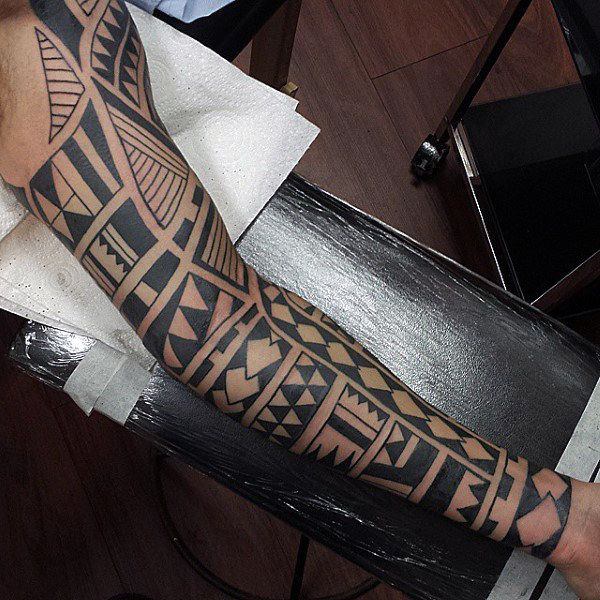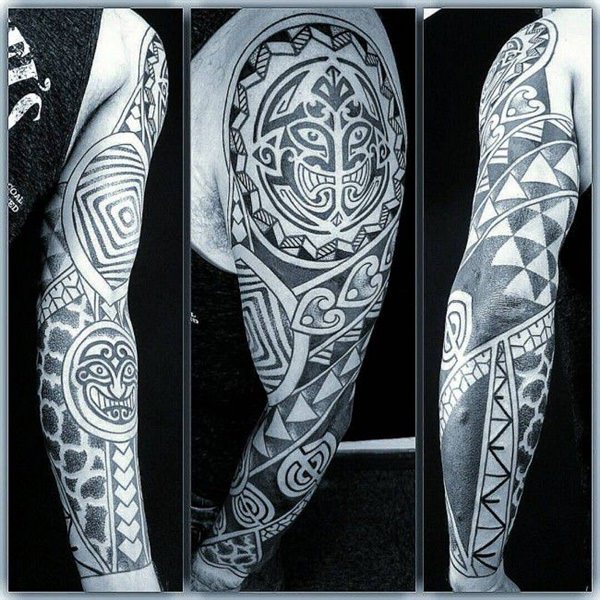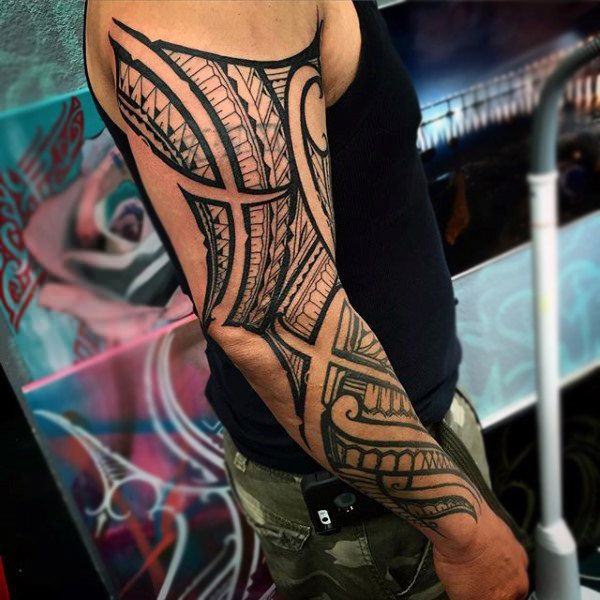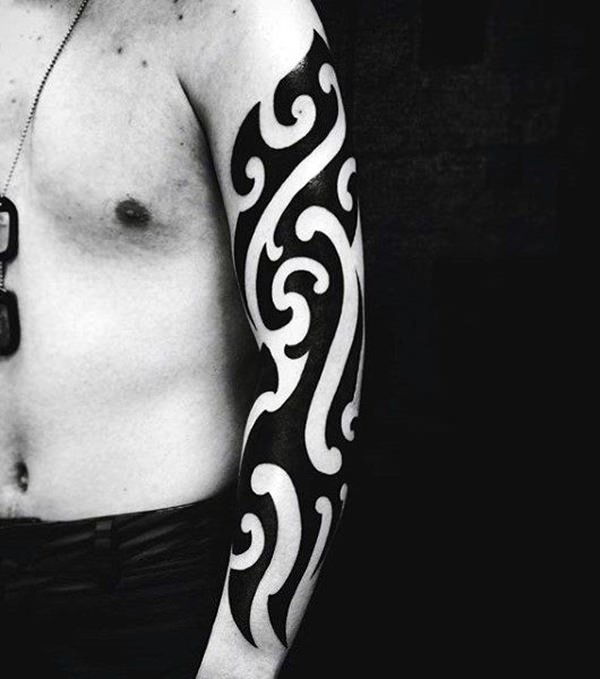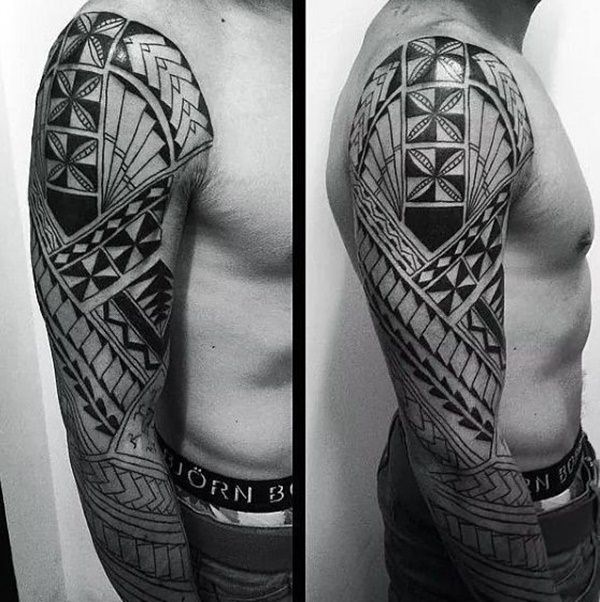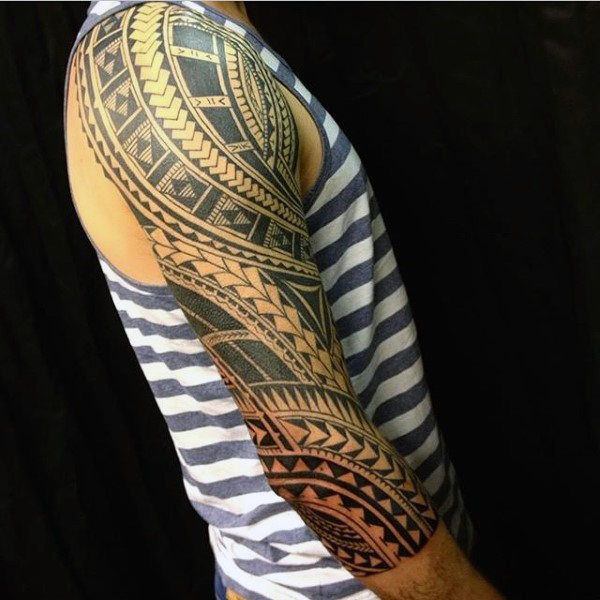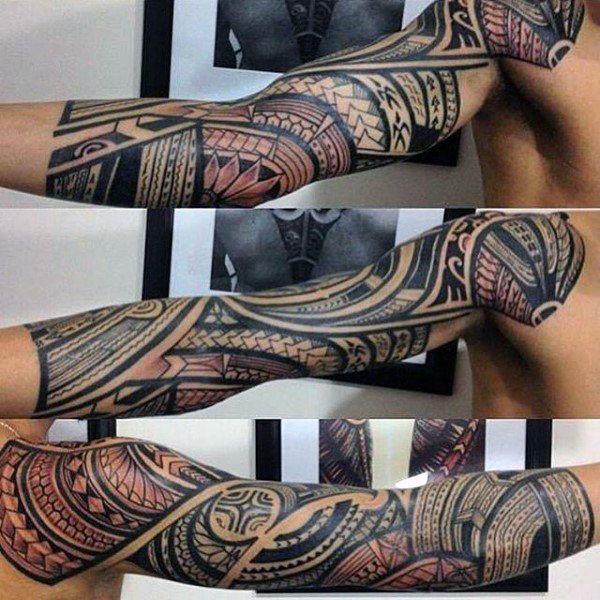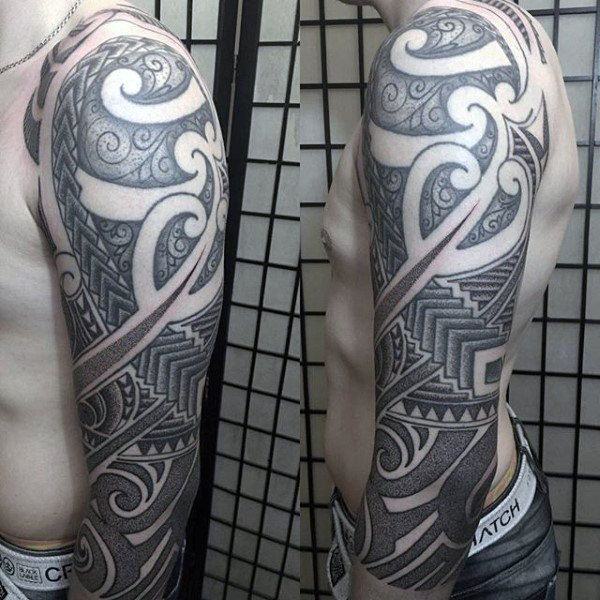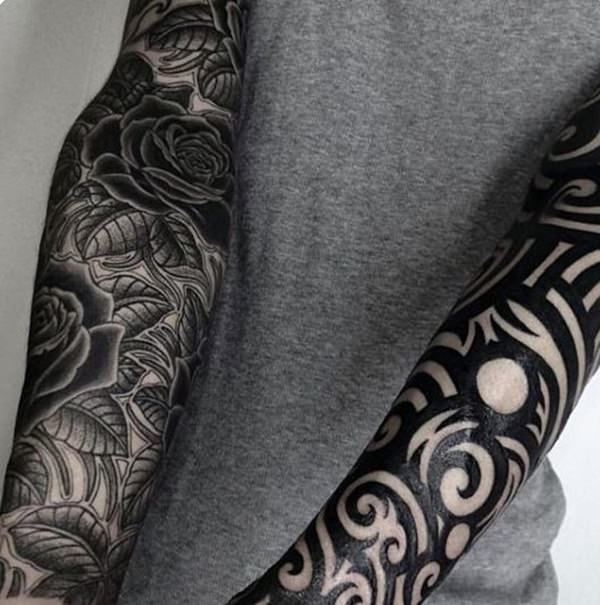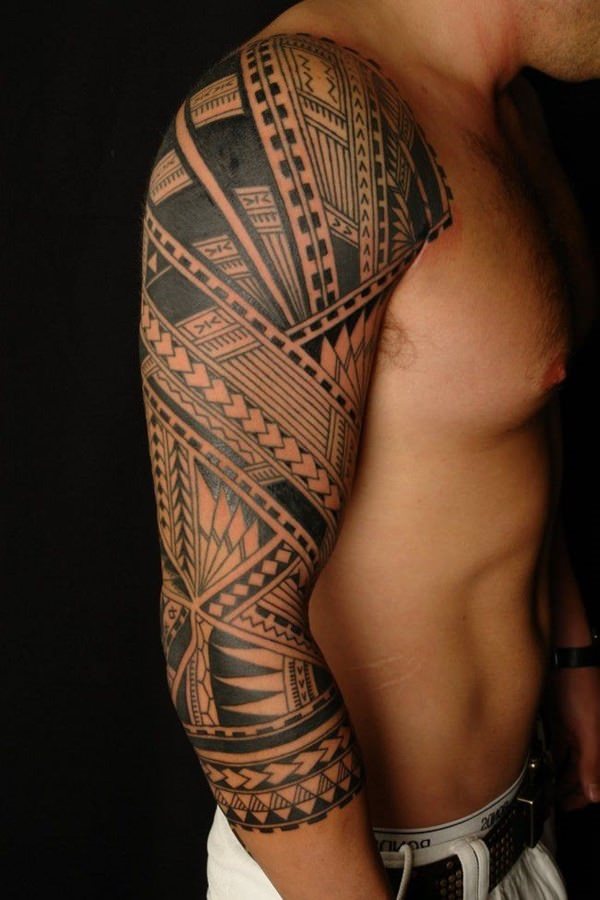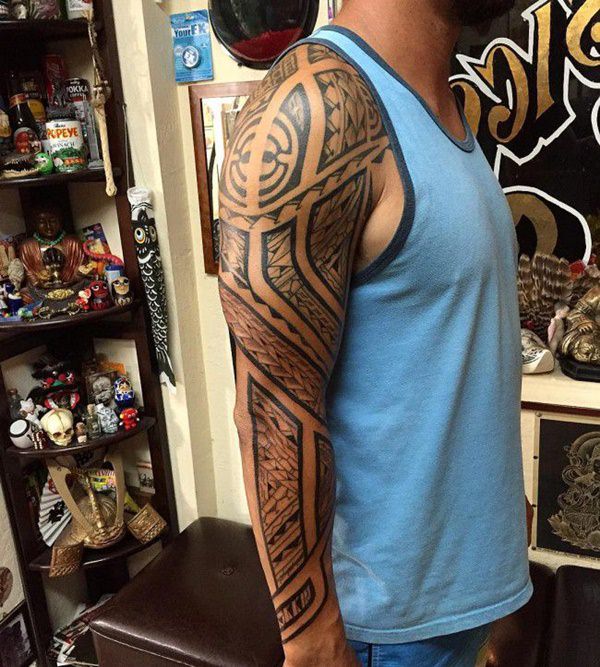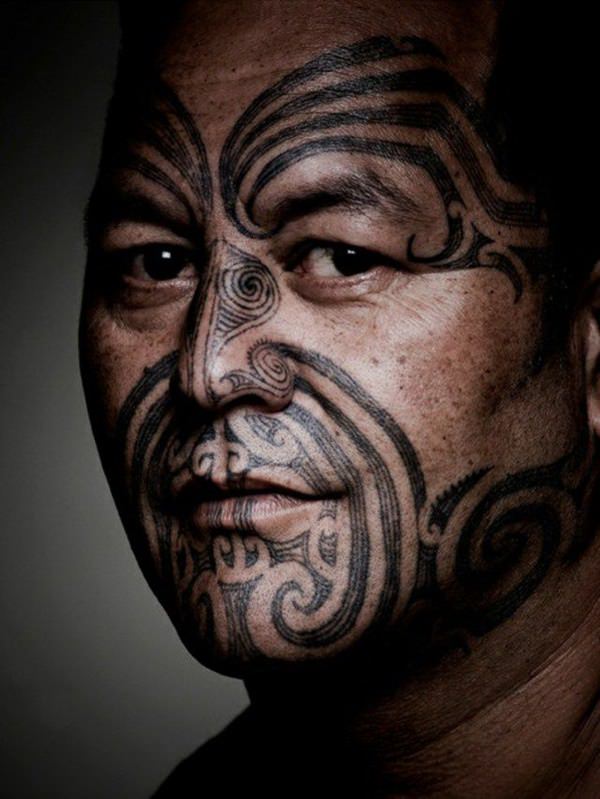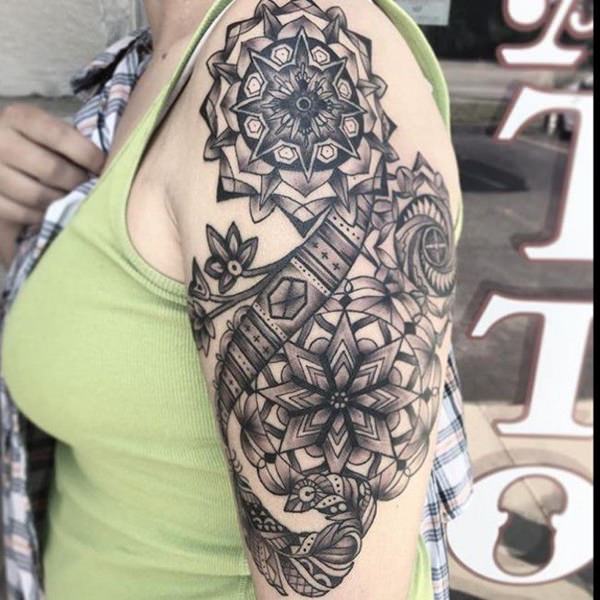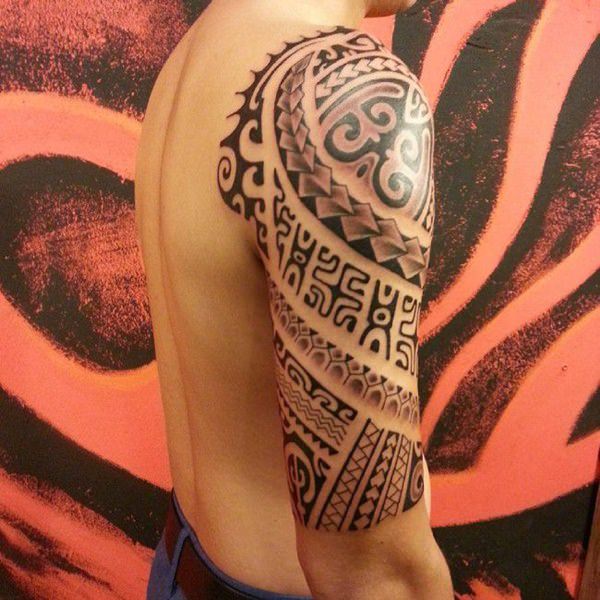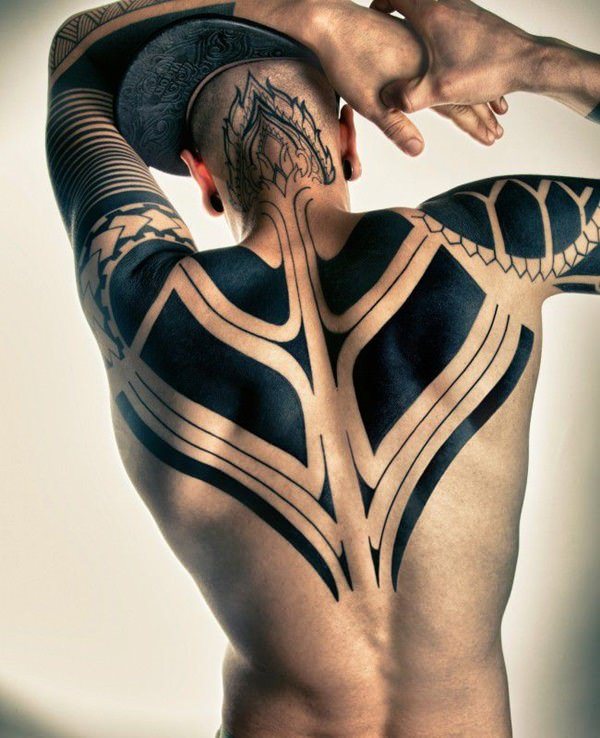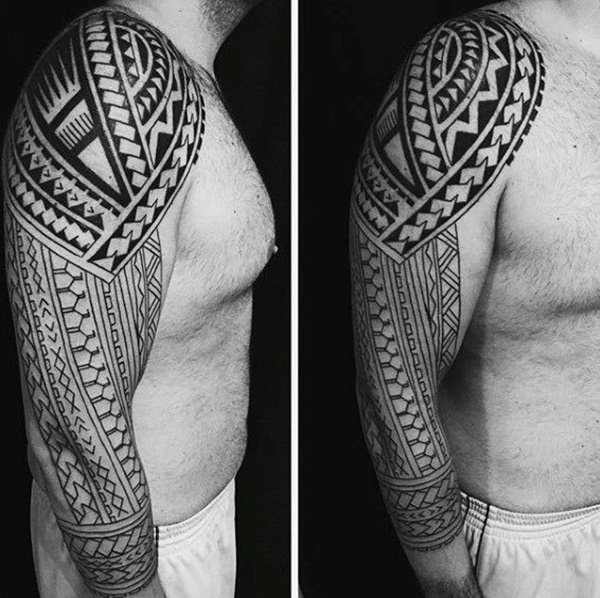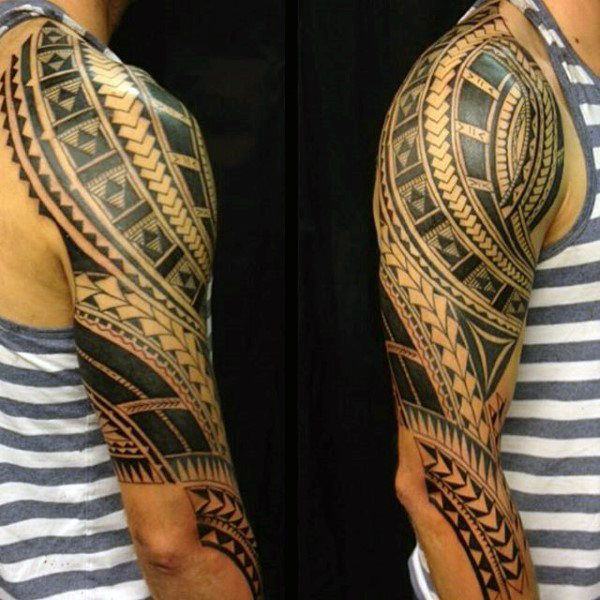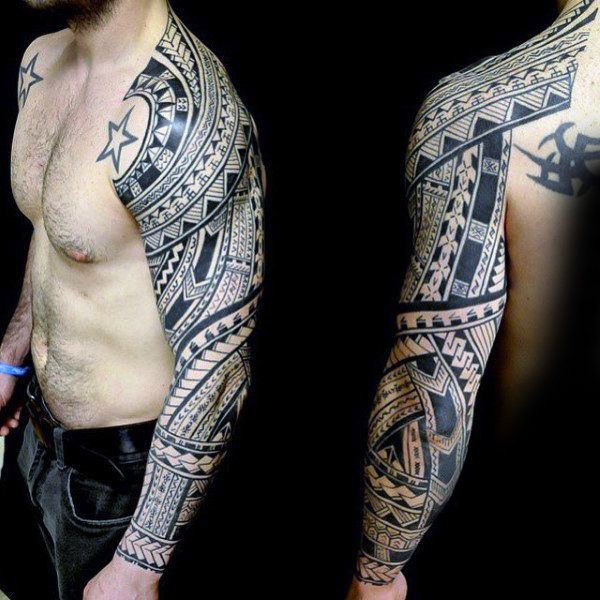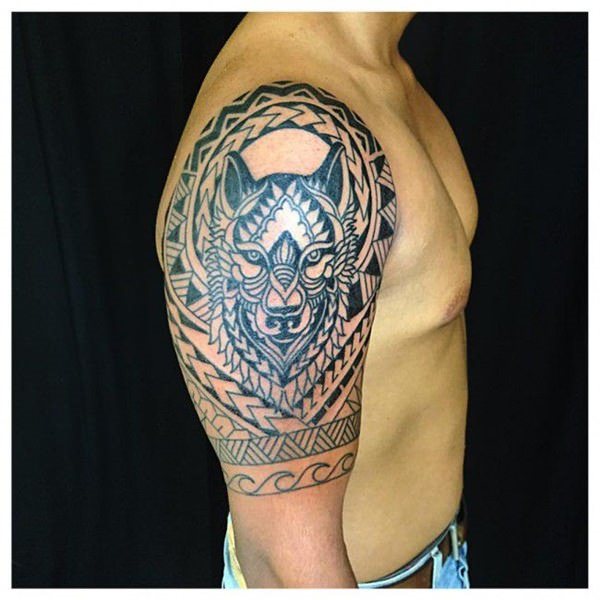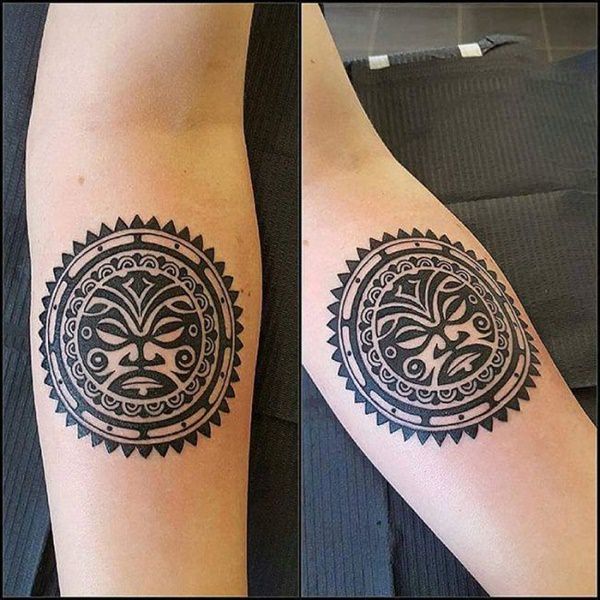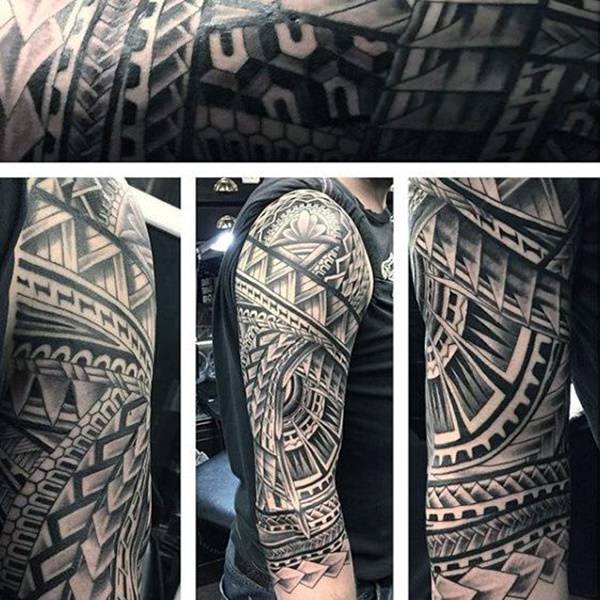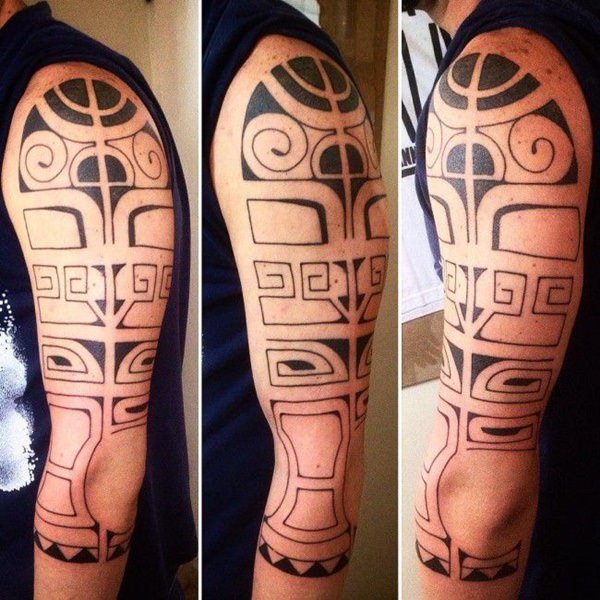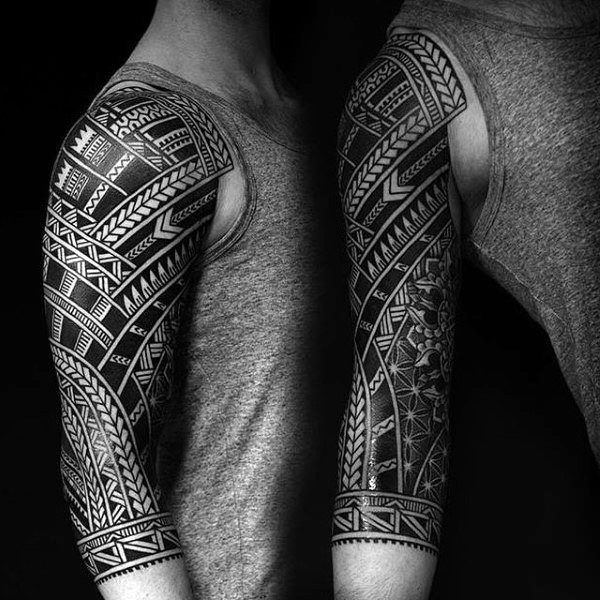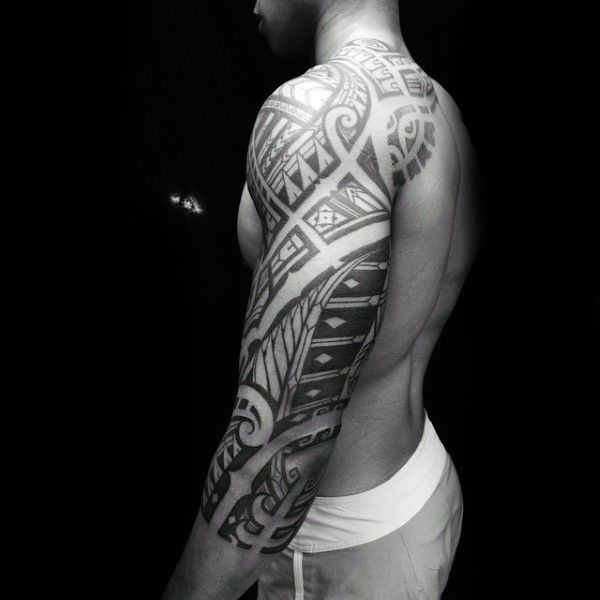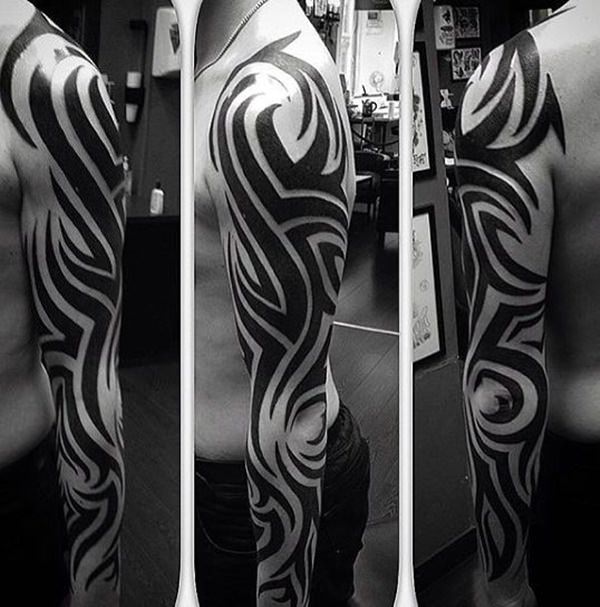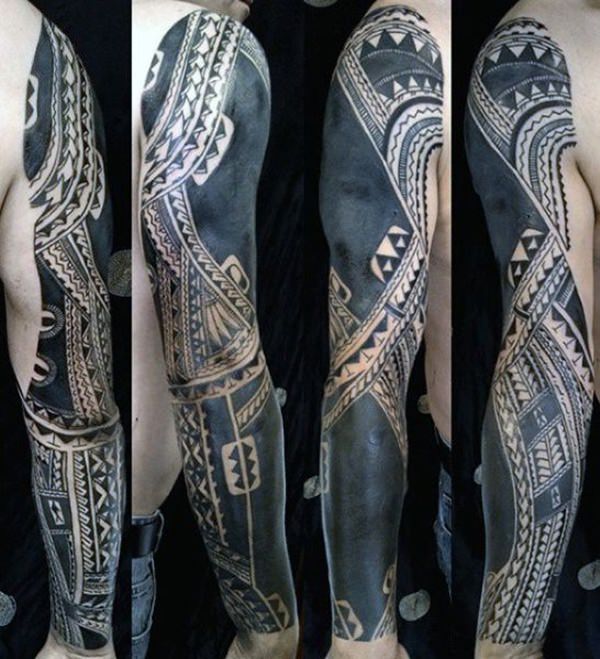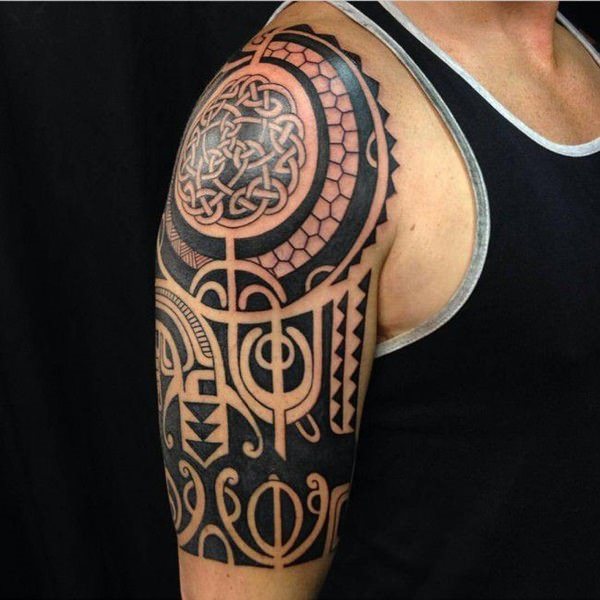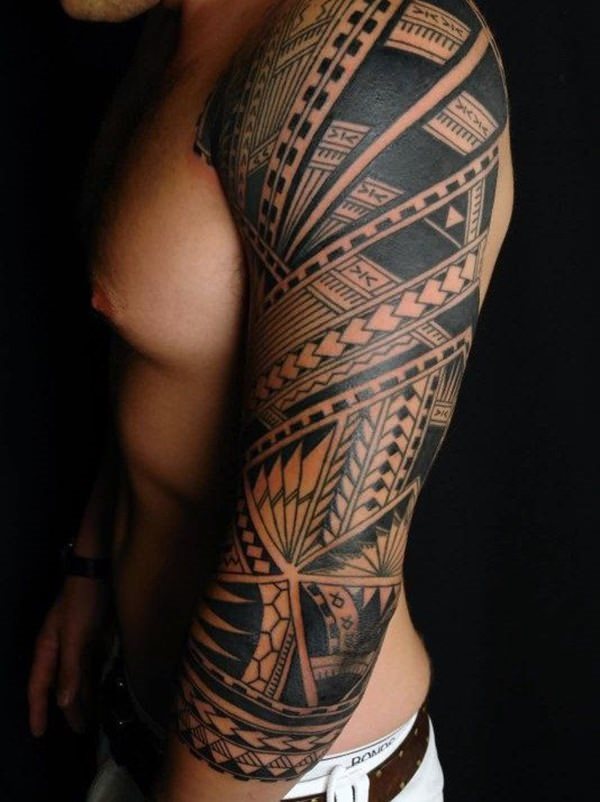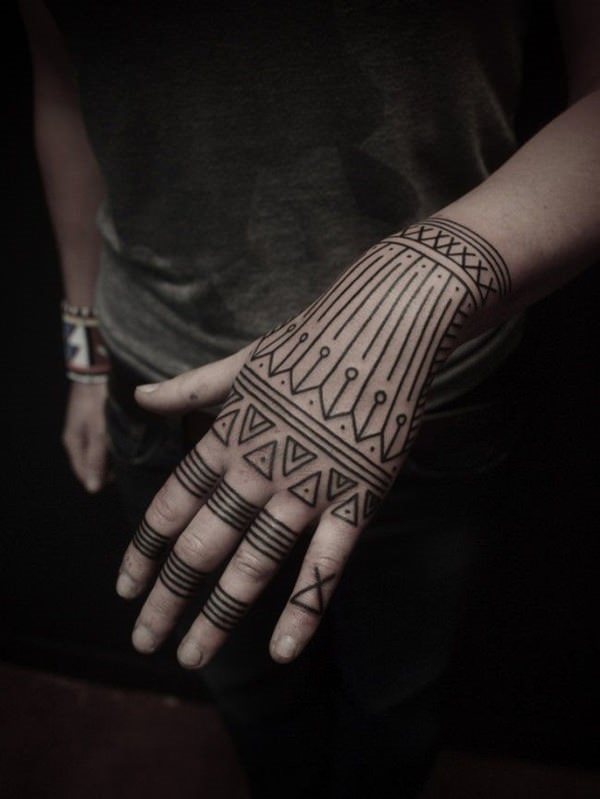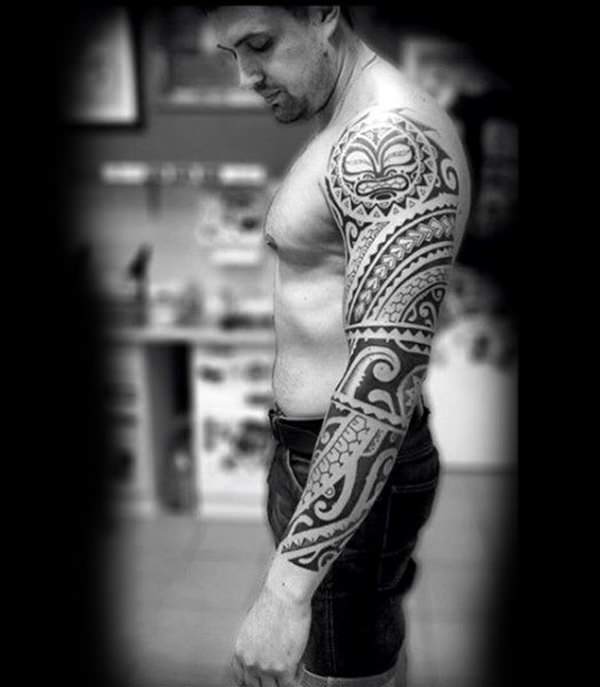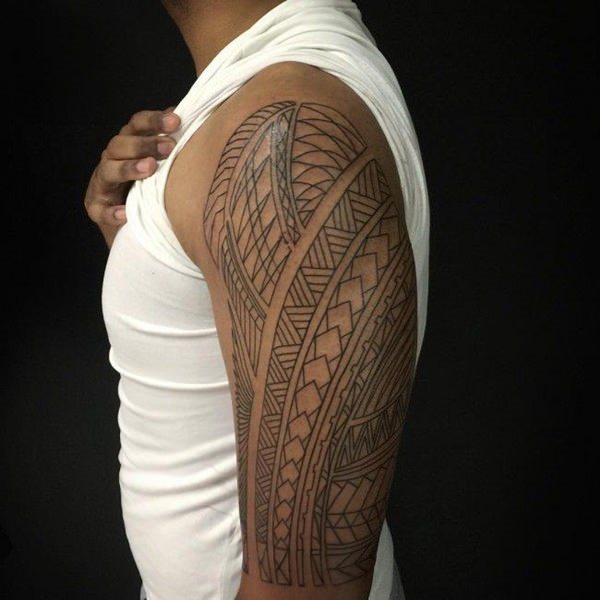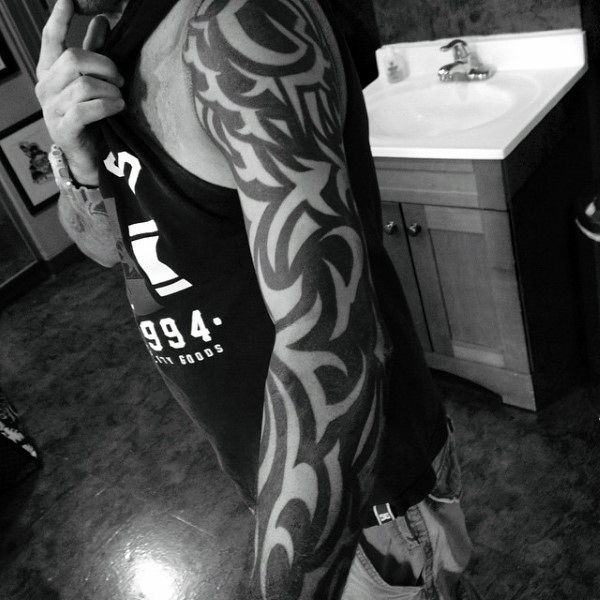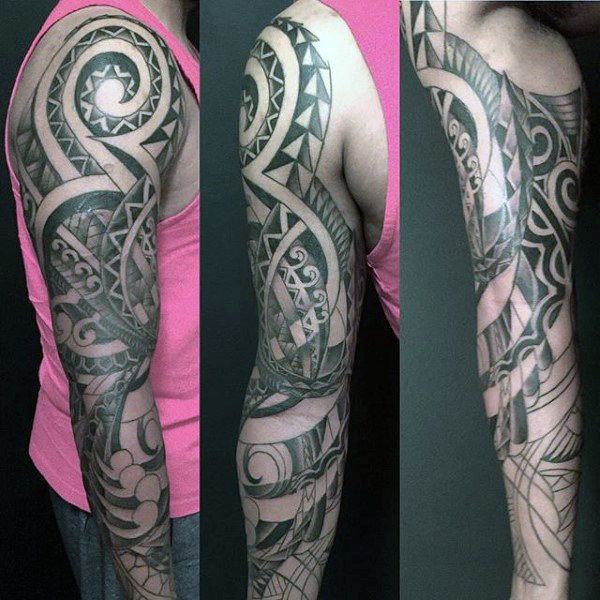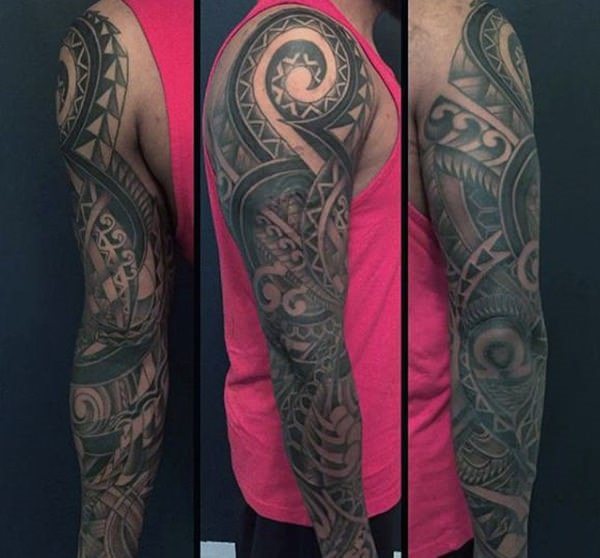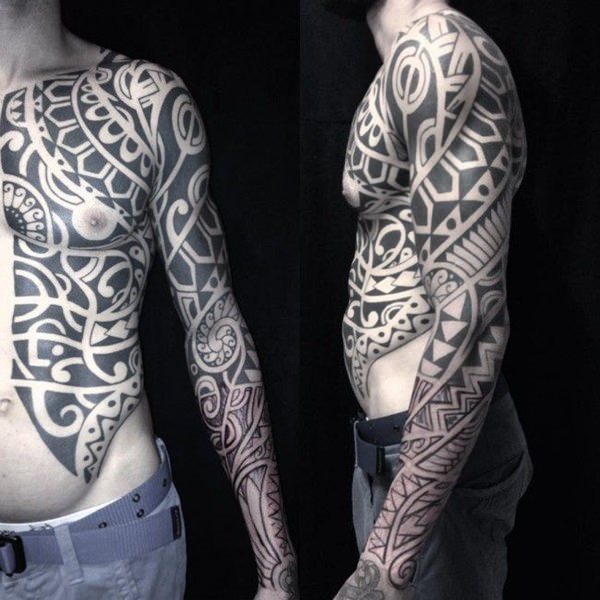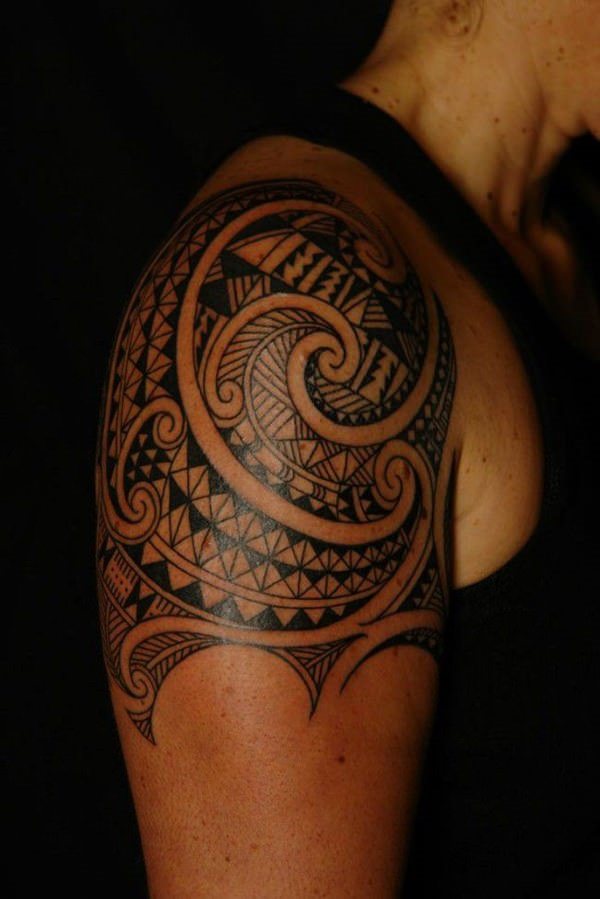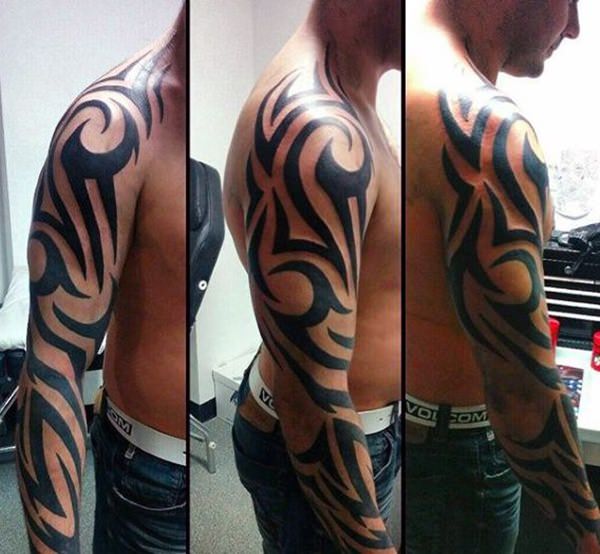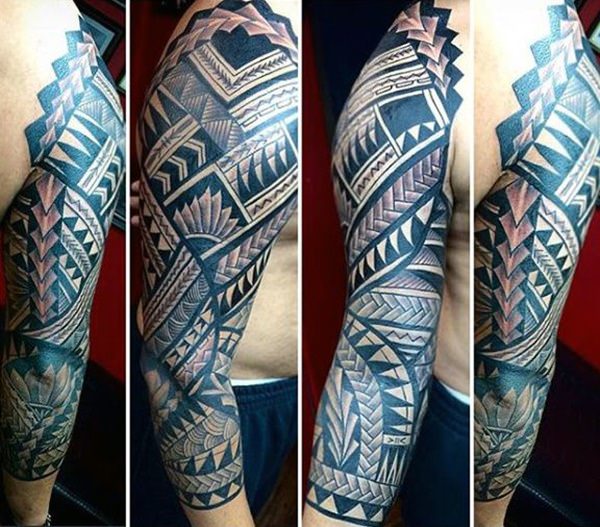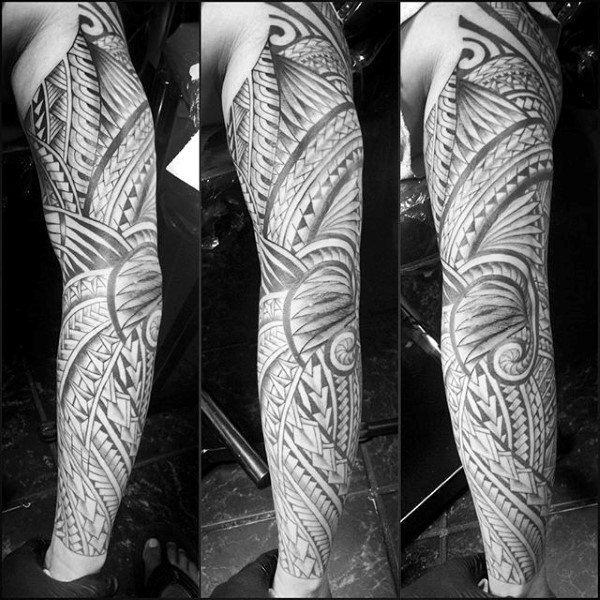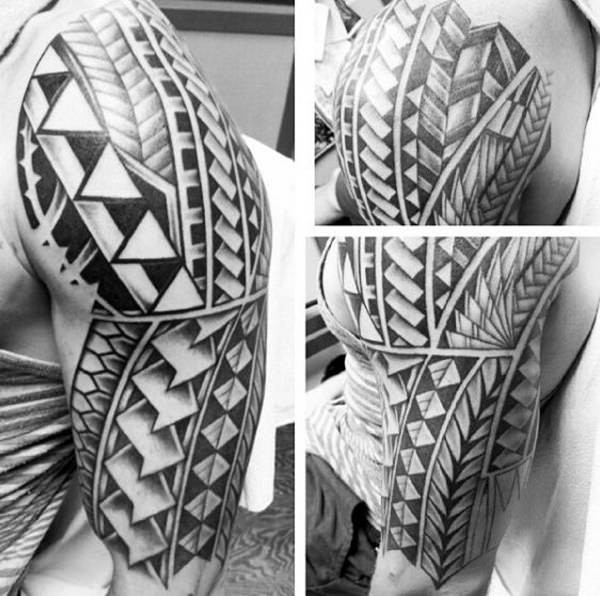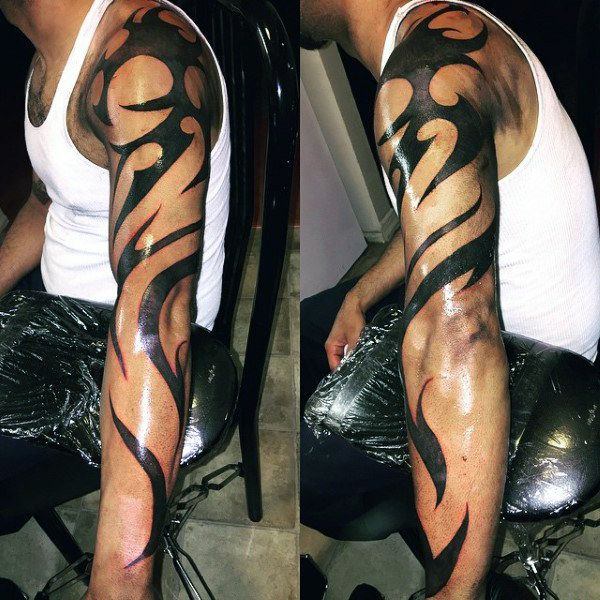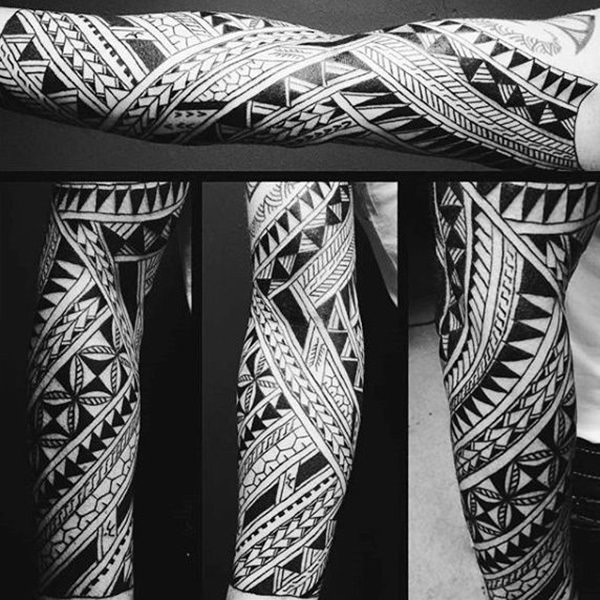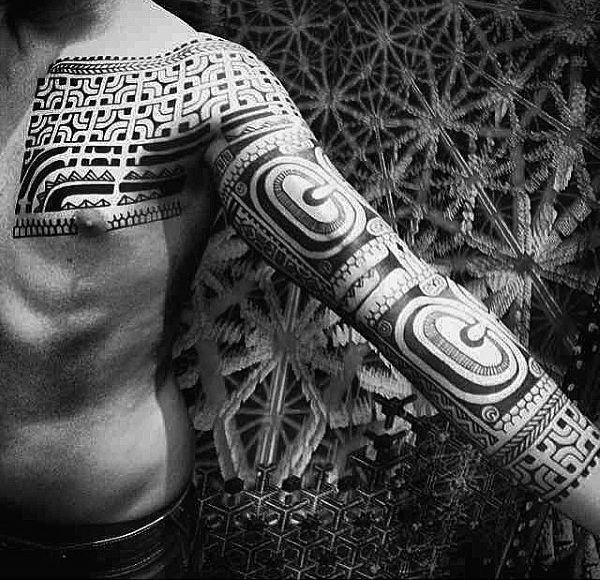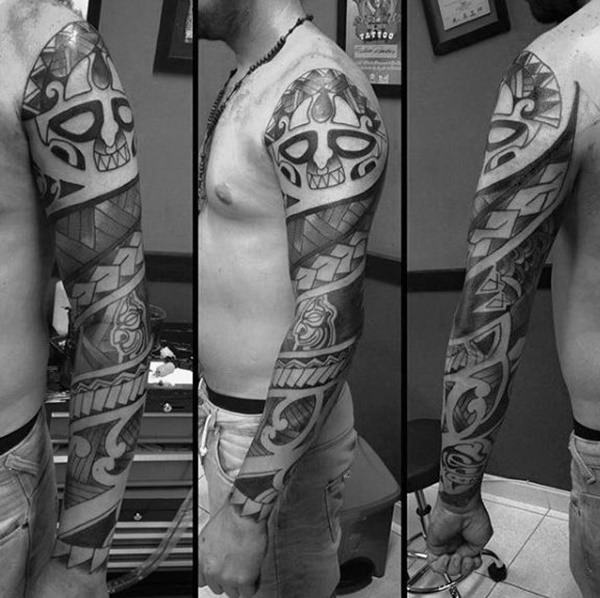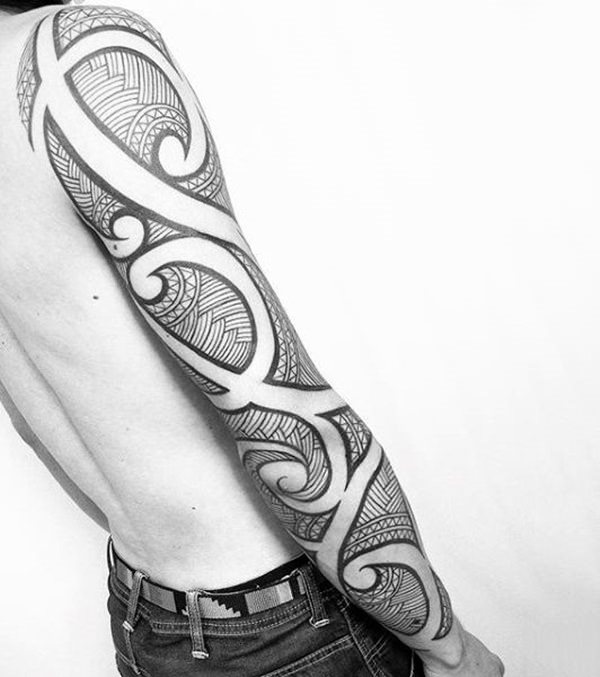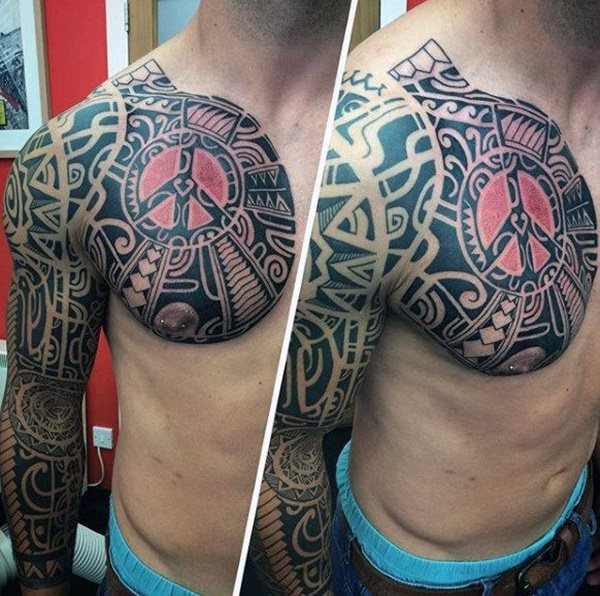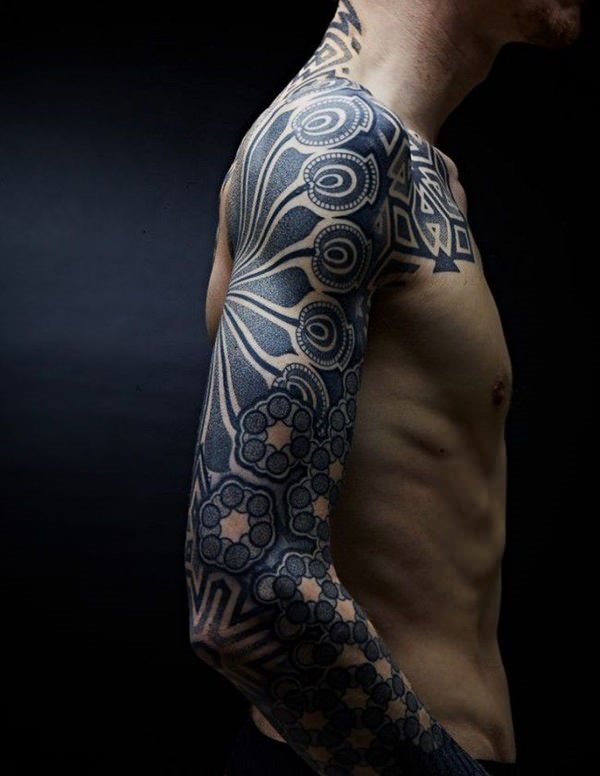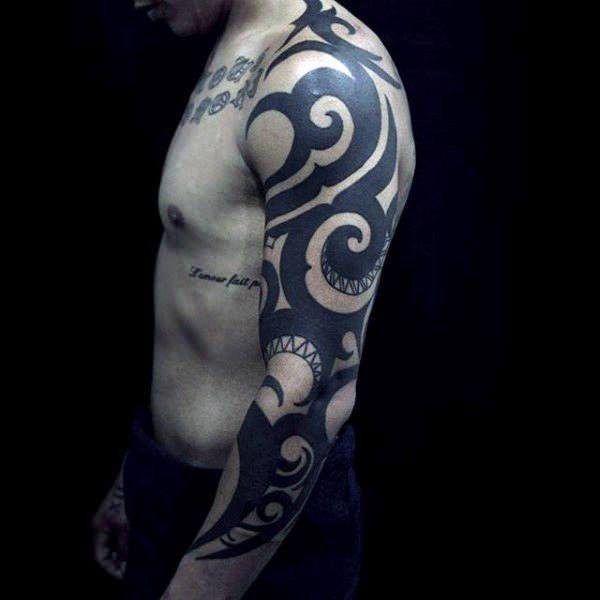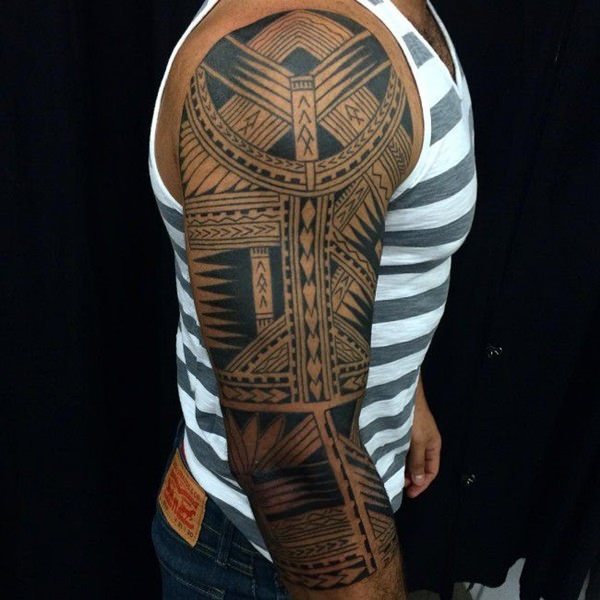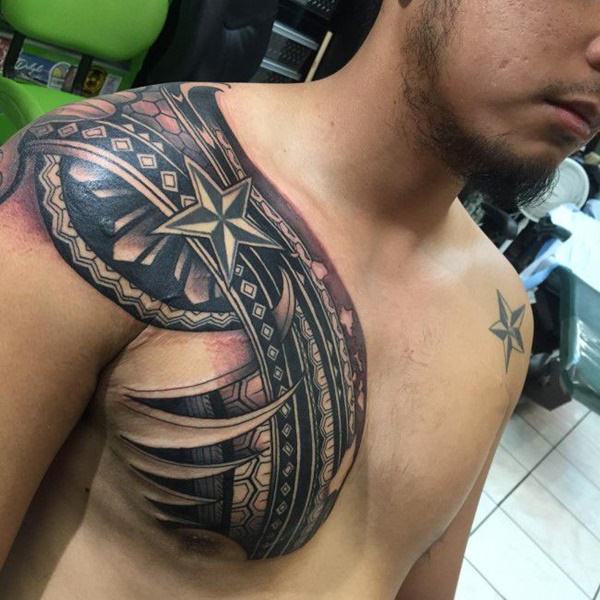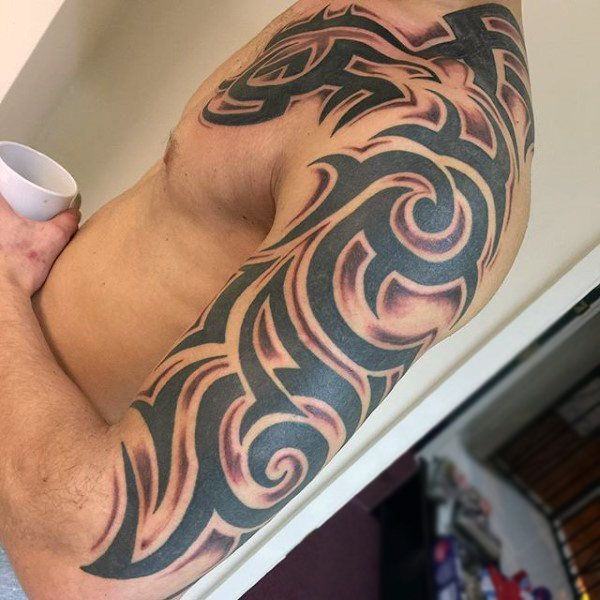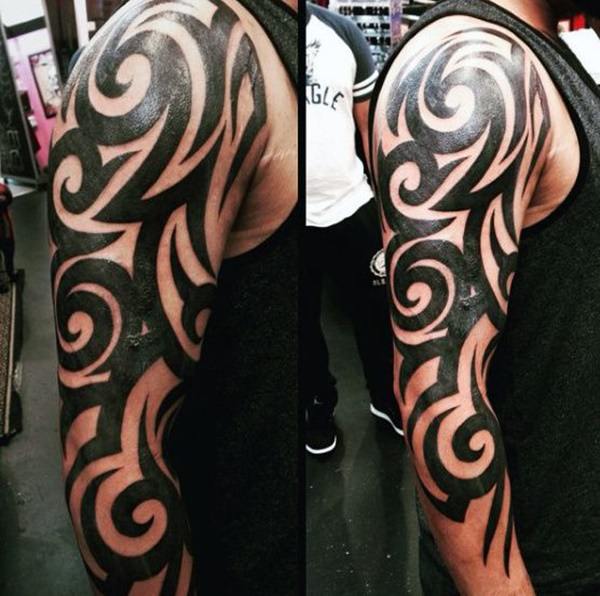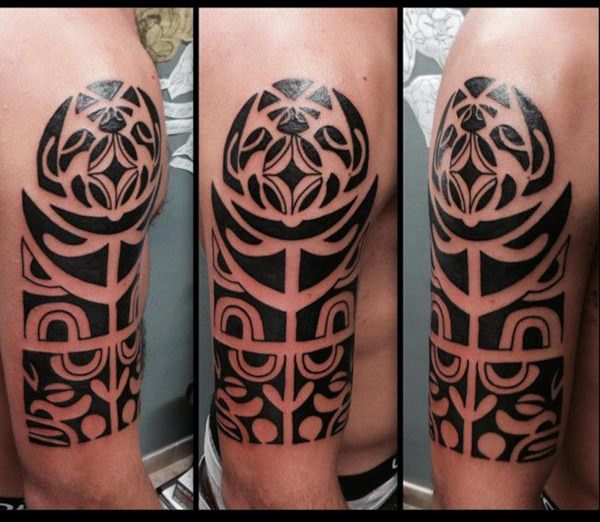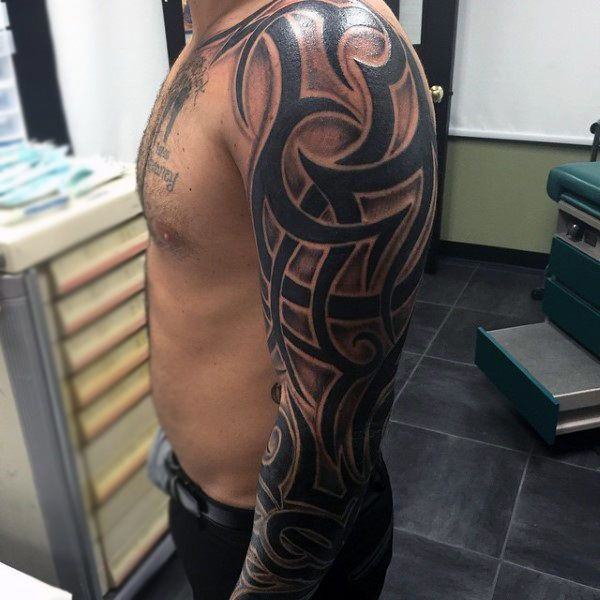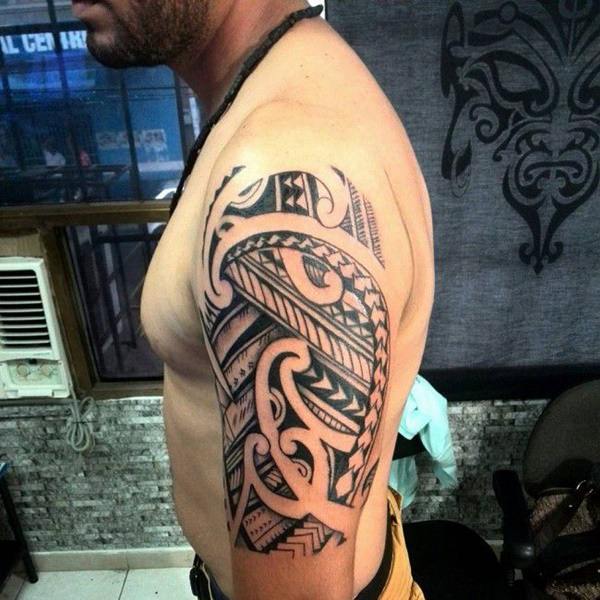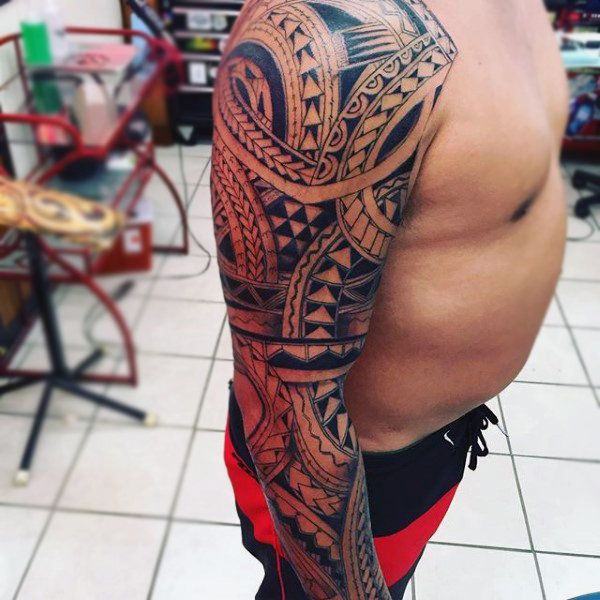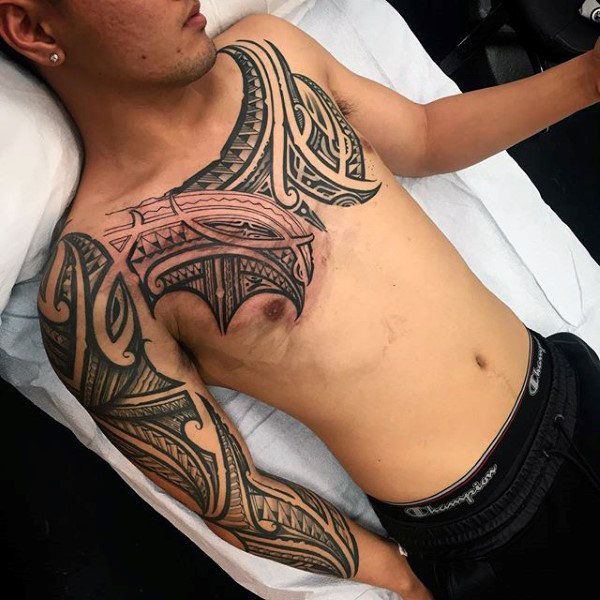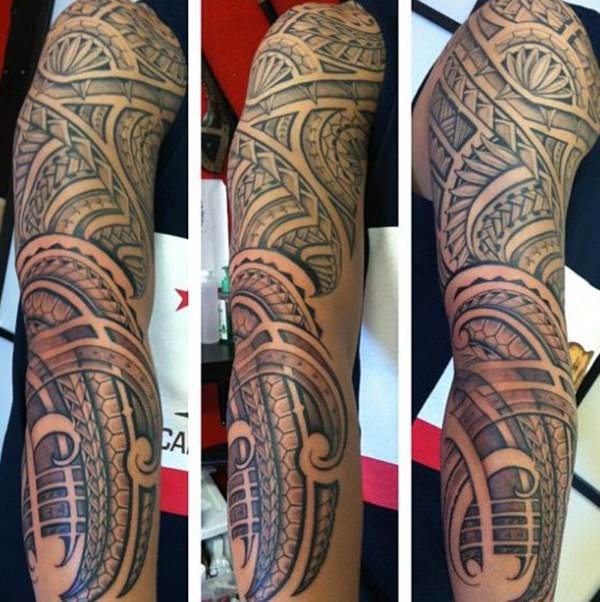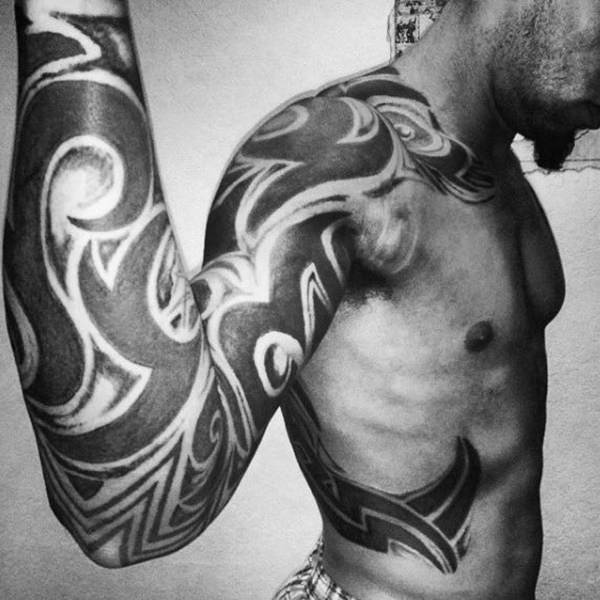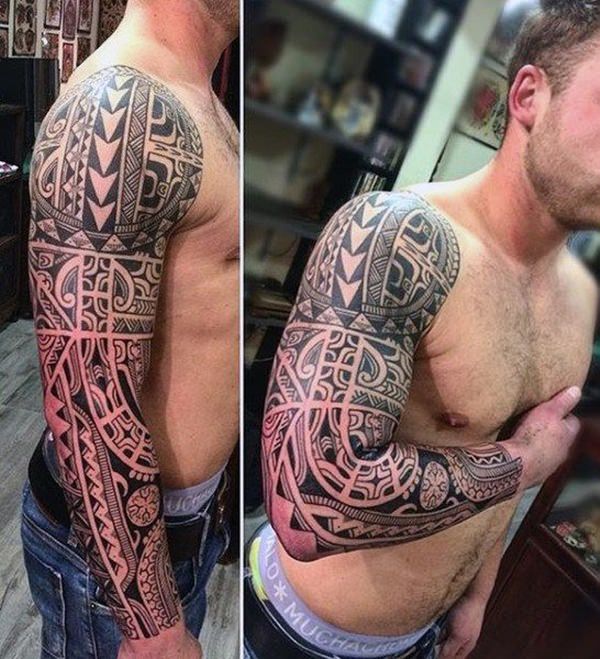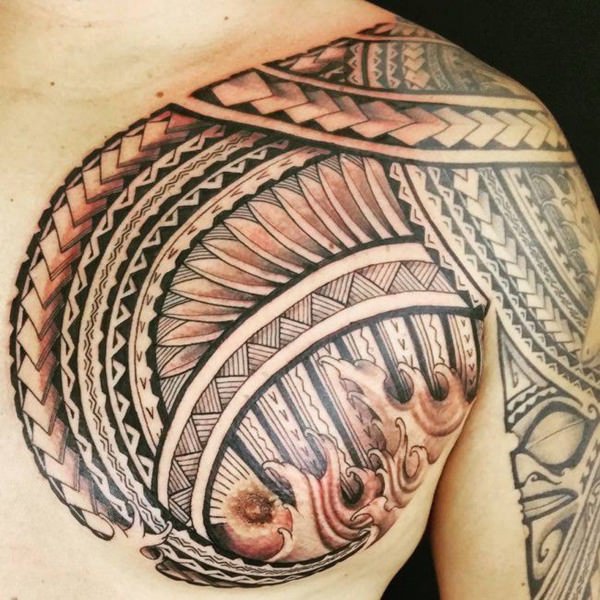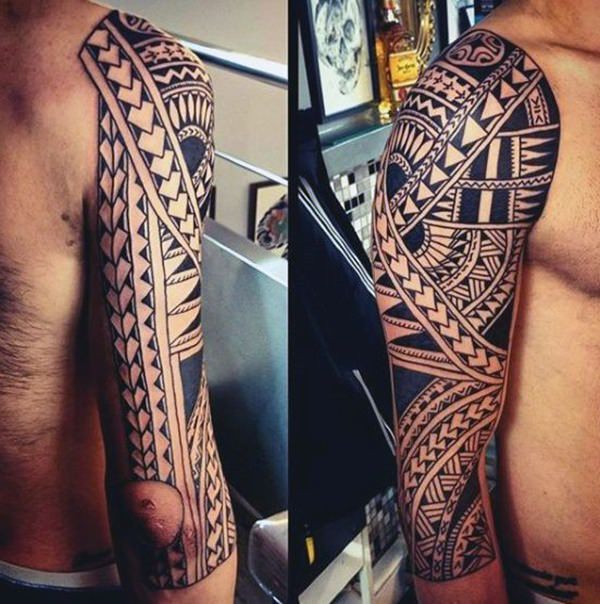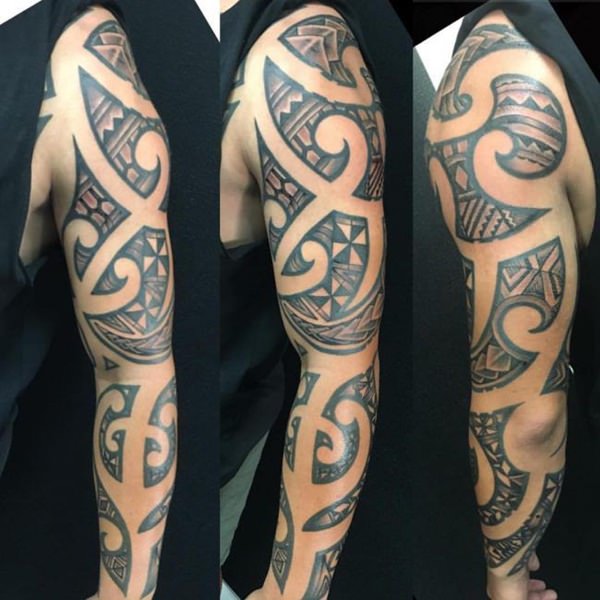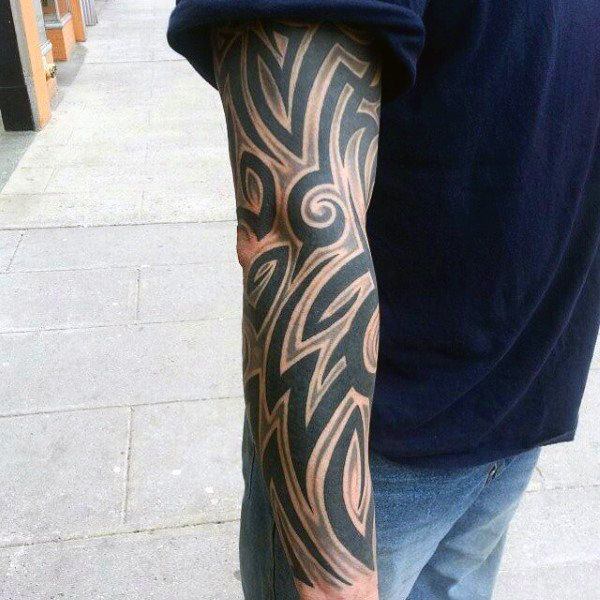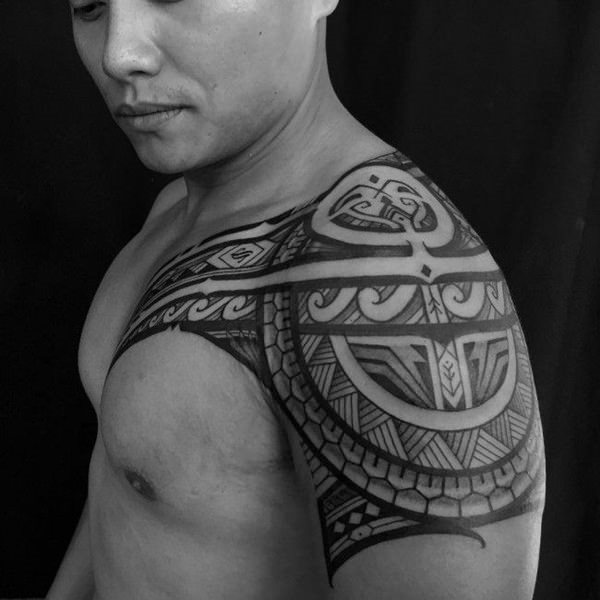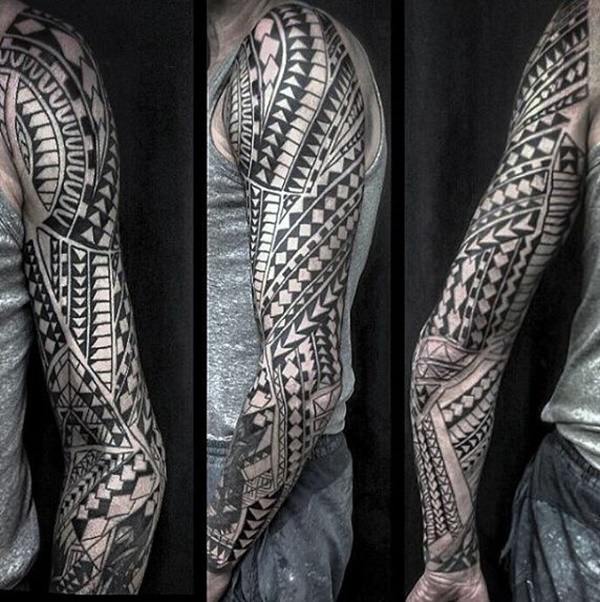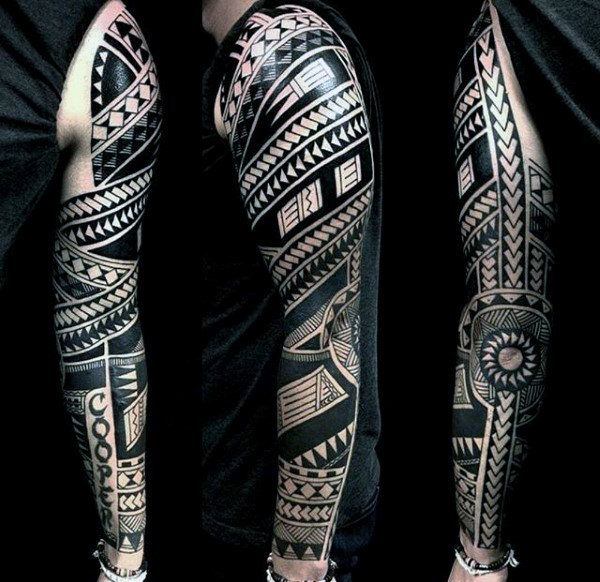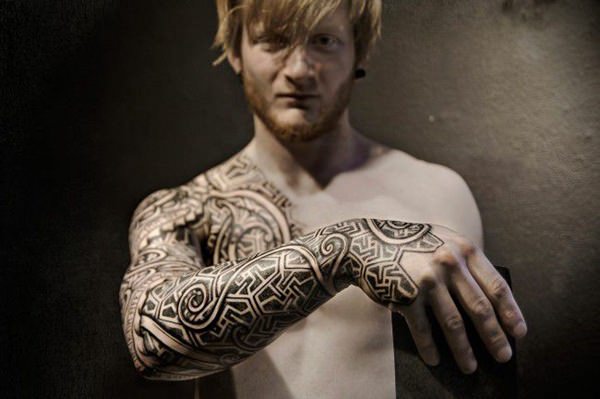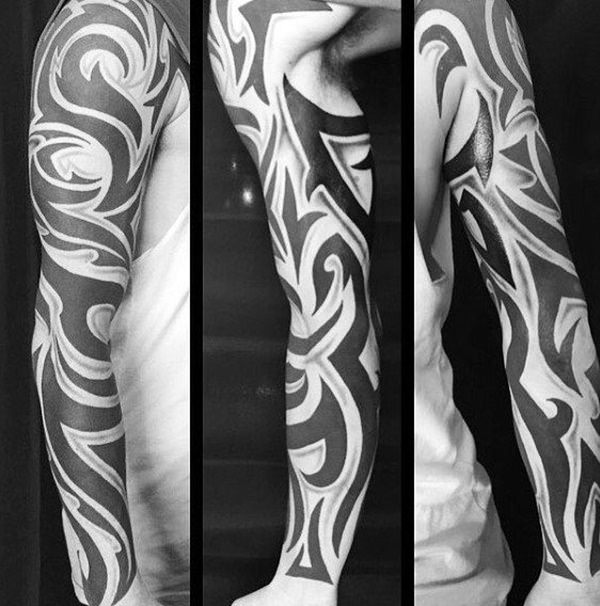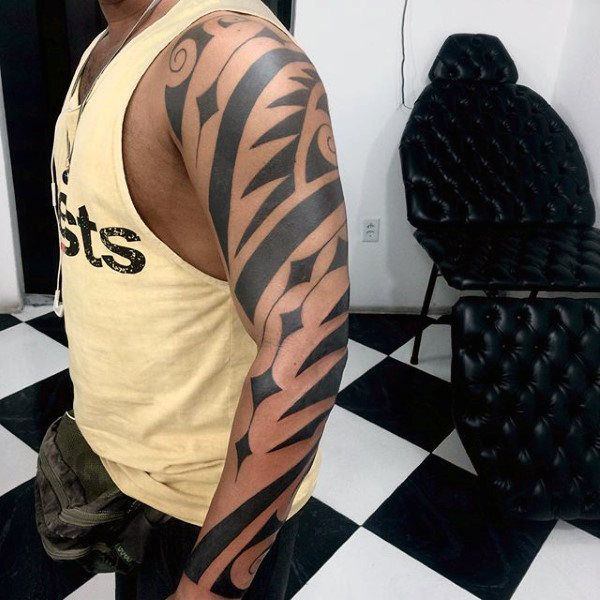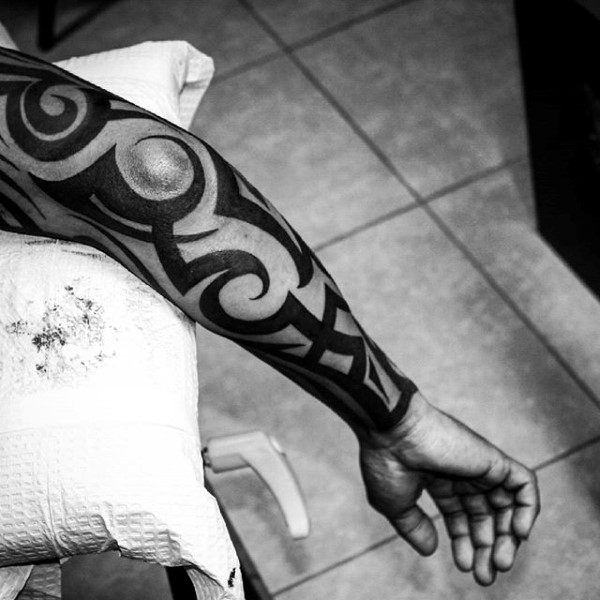Tribal tattoos remain one of the most popular choices in France. The term is however quite extensive. Even if we call certain body designs, "tribal" tattoos, it is quite possible that they do not belong to any established tribal culture. They are probably rather inspired by traditional tattoos or motifs of these cultures. In this case, any drawing can appear and the so-called tribal ones quickly become terribly varied. Most of them have features such as repetitive patterns, thick lines, use of black ink, and mythical or spiritual symbolism.
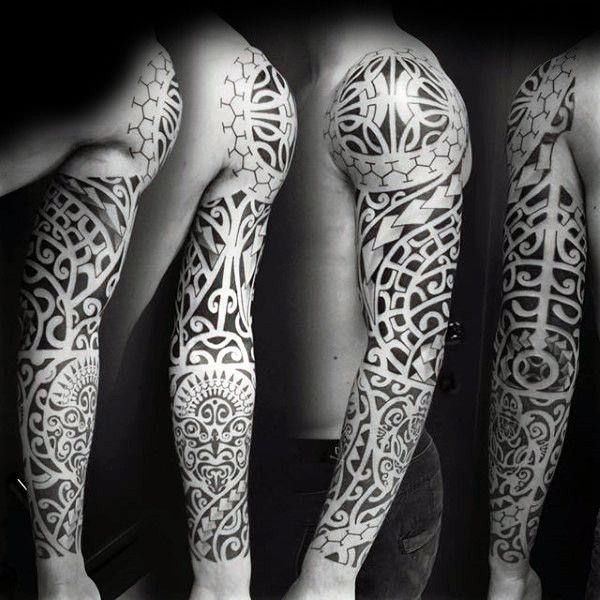
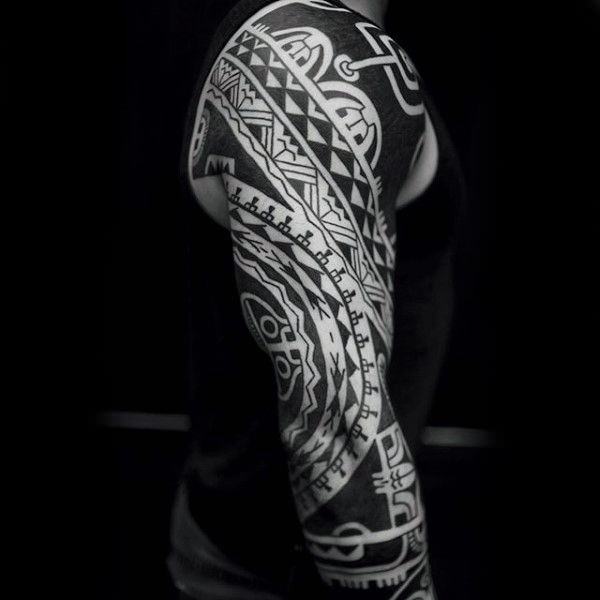
Types of tribal tattoos
It can be difficult to talk about types within this category. As we mentioned earlier, the categorization of tribal tattoos itself can be infinite. It is therefore natural that talking about particular types is also a little complicated.
However, there are some basic categories that we can determine for ease. The first difference that we can consider is the one that exists between the traditional tribal corporal works and the modern ones, for example.
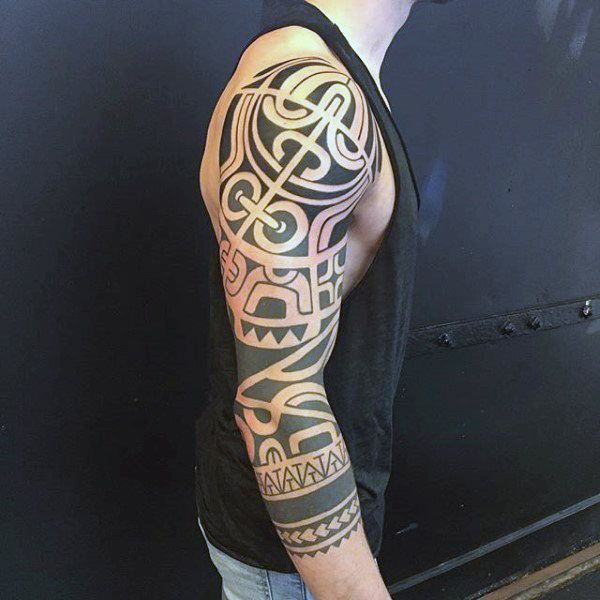
1. Traditional tribal coporal works
When we talk about traditional tribal body art, we refer to tattoos that only use authentic tribal designs and originals. They are quite rare because a lot of current tribal corporal works include modern elements. Even so, traditional designs still exist today. For example, there are still tribes in Africa that use old tribal designs passed down from generation to generation. The same phenomenon can be seen in some Maori in New Zealand.
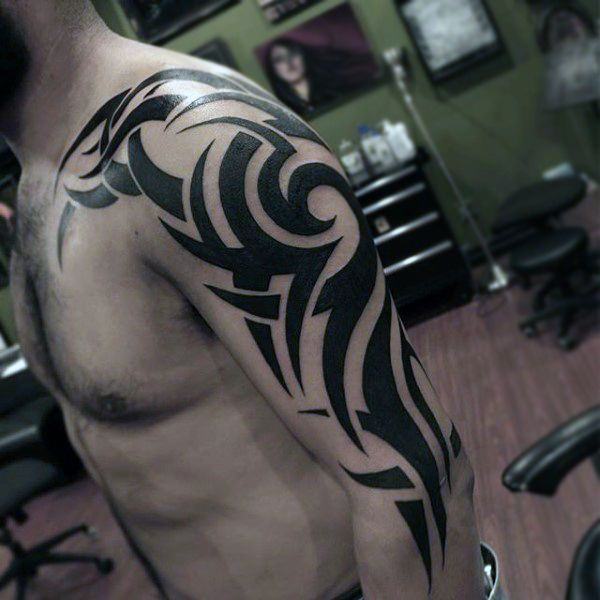
The drawings of the Maori Ta Moko people are particularly well-known examples of traditional tribal tattoos for excellent reasons. After all, the word "tattoo" derives itself from the word Maori designating these bodily decorations. The Ta Moko people also show us many of the functions that these bodily compositions can have in traditional societies. They serve to show the social status of the tattooed person and also indicate his or her spiritual or personal strength.
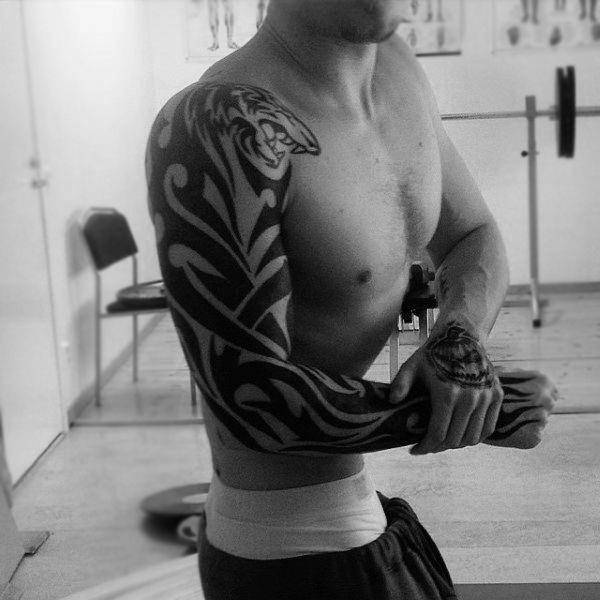
2. Modern tribal tattoos
Modern designs often include some elements of traditional designs that they transform in different ways. The result is often an original and intercultural design – a kind of showcase of symbols that can be very attractive.
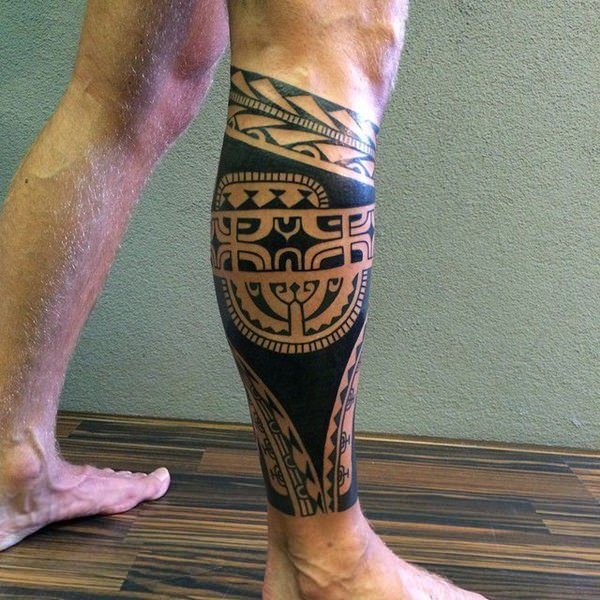
Now, even within this category, we can talk about various subcategories. We could, for example, talk about types of tribal tattoos based on the main source (or the most important source of inspiration) of these. We could therefore speak of tribal tattoos Maori, Celts or Aztecs, and even Wiccans.
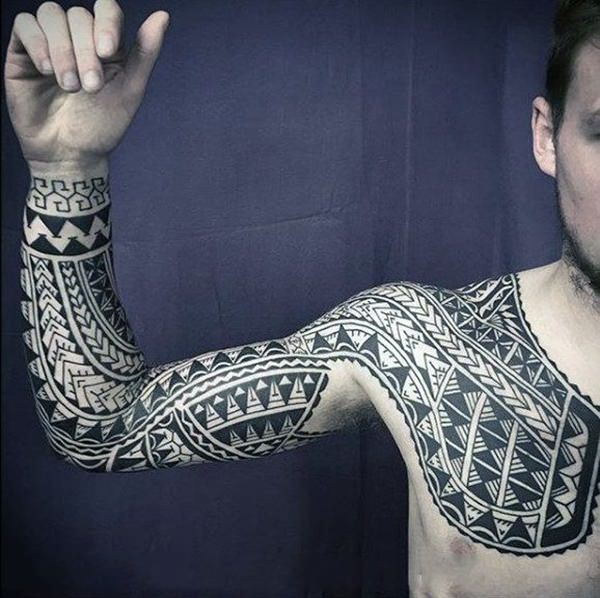
Meaning of tribal designs
The meanings of tribal tattoos do not only depend on the drawing but also on the culture to which they refer. Let's not forget that different images or symbols can represent very different things in different cultures, after all. So, if you want to know the meaning of a specific tribal pattern, you will have to ask the tattoo artist or the wearer what it really refers to.
The tattoos Ta Moko Maori, mentioned earlier, are a magnificent example of the meaning of this type of body composition. These drawings covered the whole face of a person and were composed of very complex patterns. Of course, they were unique for each person and it also woven a network of meanings.
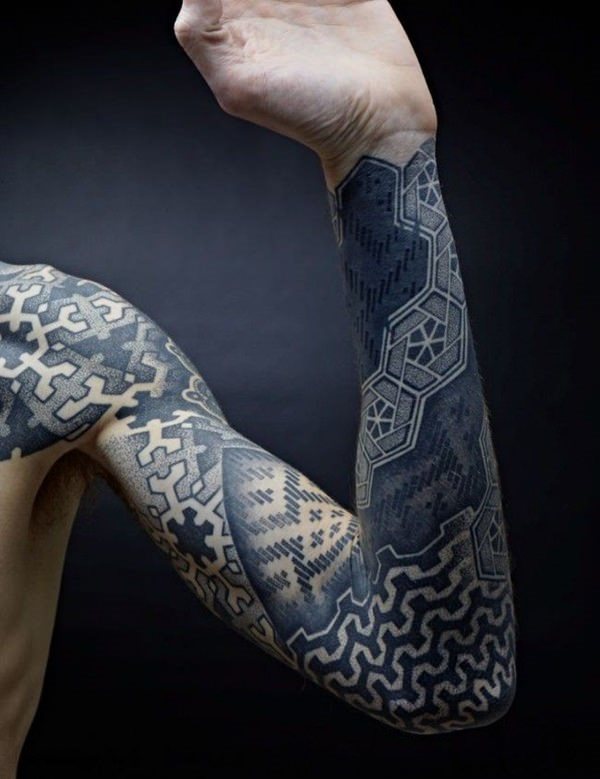
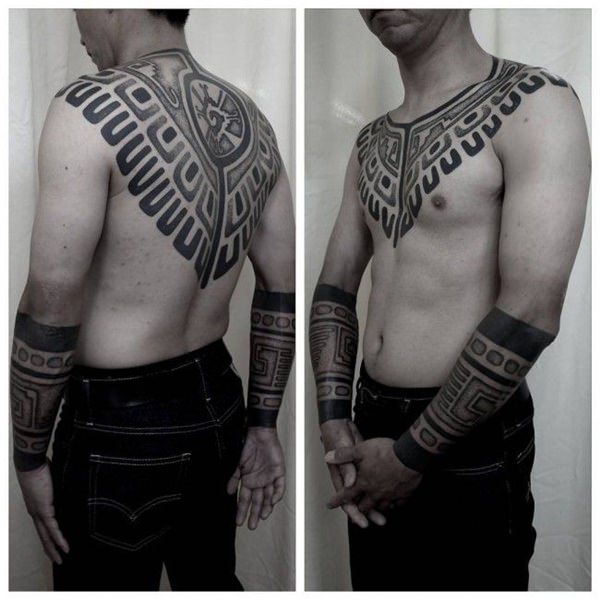
Maori believed that dead people became translucent – that light passed through them. It made the dead impossible to identify. People who wore Ta Moko tattoos, however, had a unique incised and printed design that their faces. Once the person was dead, the drawing engraved on his face resisted the passage of light and contrasted, allowing his friends and family to recognize it, even after his death.
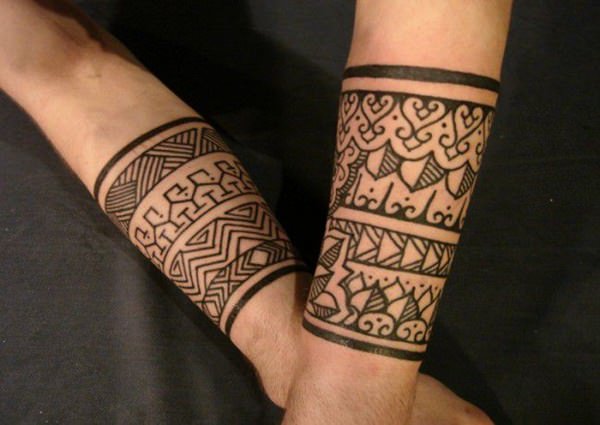
Tribal compositions can also have spiritual meanings. For example, some traditional designs were supposed to serve as a ritual of protection against demons and forces of evil in some cultures. Of course, this type of meaning is not at all present in modern culture. Some of the modern tribal compositions have no deep meaning, neither for the tattoo artist nor for the owner: they are just there for a simple aesthetic purpose.
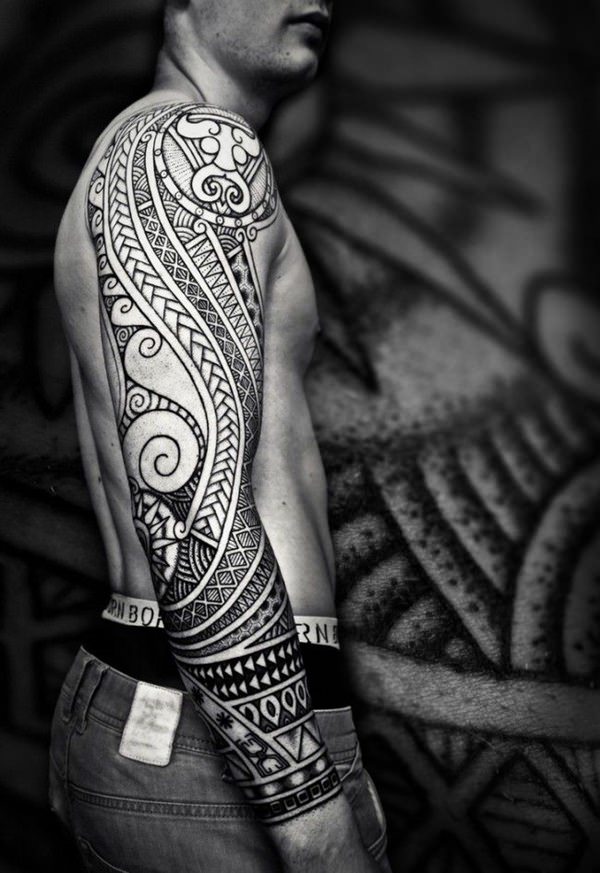
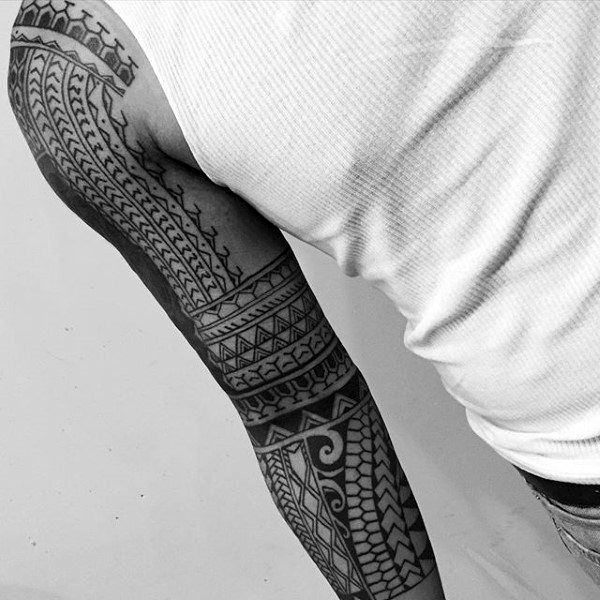
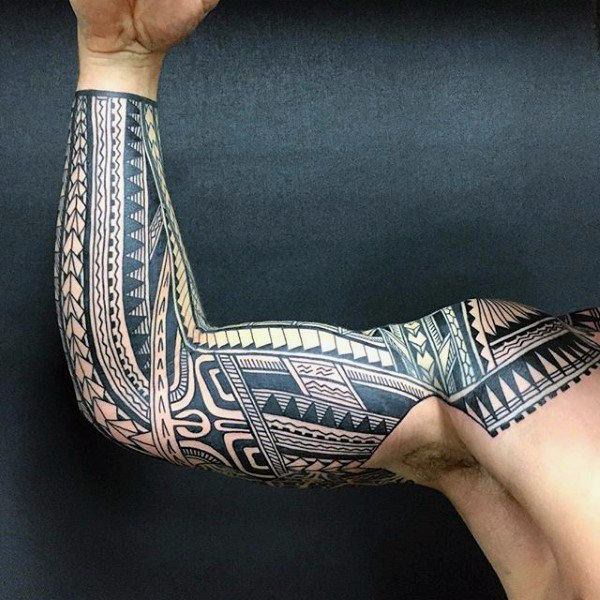
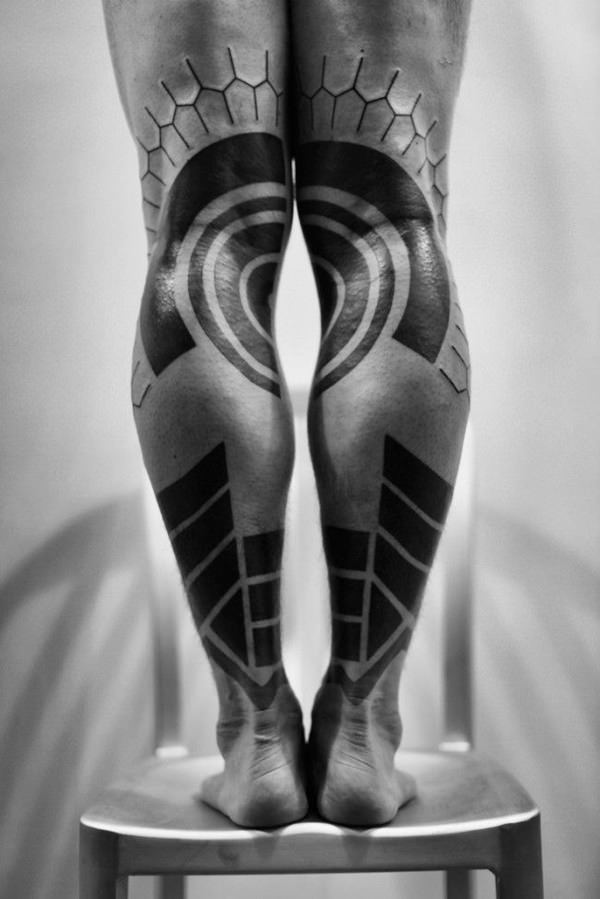
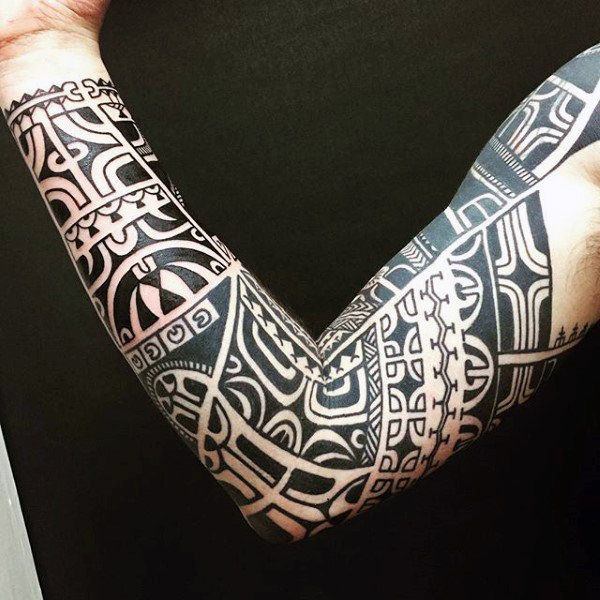
Ideal placement of drawings
The placement of tribal can also be highly variable. Most traditional tatoos were supposed to be visible, which explains their location in places like the face, neck and hands. If you are looking for a modern tribal, however, you will likely consider these places as inappropriate. For example, you may not want to tattoo your face because of the opinion of the company or the professional restrictions on it. While Ta Moko facial tattoos indicated significant social status in traditional Maori tribes, today they do not mean the same thing in contemporary society.
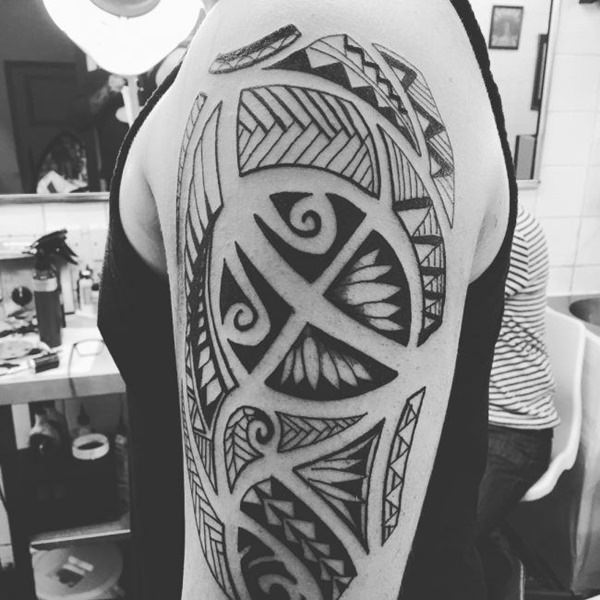
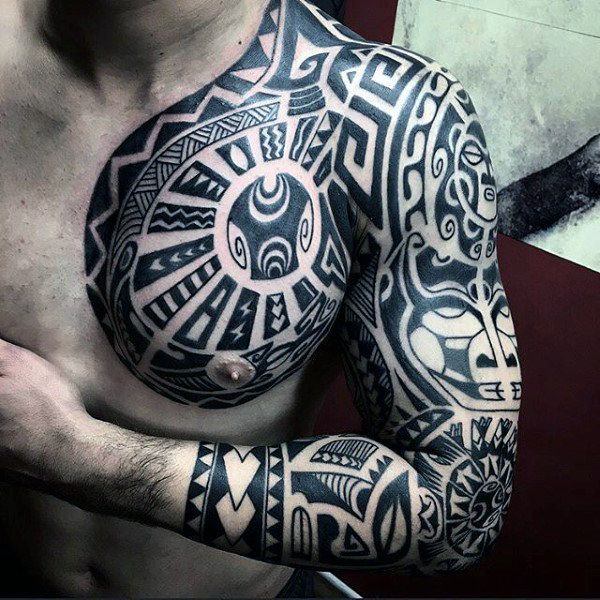
If you want a very discreet tribal tattoo, you can consider placing it at places in your body that are easy to fuck. These can be places easily recoverable by your hair or clothes. You can consider doing a tattoo on the feet or hips, for example. Works placed on areas of skin generally hidden by your t-shirt or shirt are also a good option.
Remember, however, that placing a tattooed pattern in a place that is easy to hide will often go hand in hand with a painful session. For example, a drawing on the ribs or flanks: it is possible to hide it with a top but it is also one of the most painful tattoo places. Before deciding to get tattooed on this area, think carefully and try to determine the level of pain that you are able to endure.
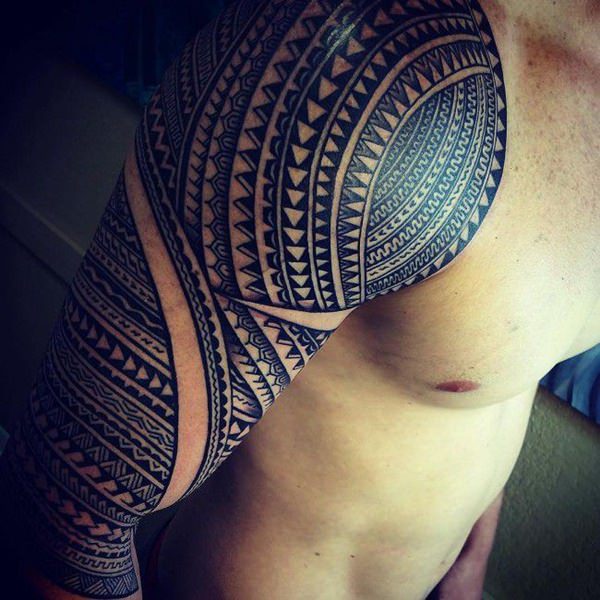
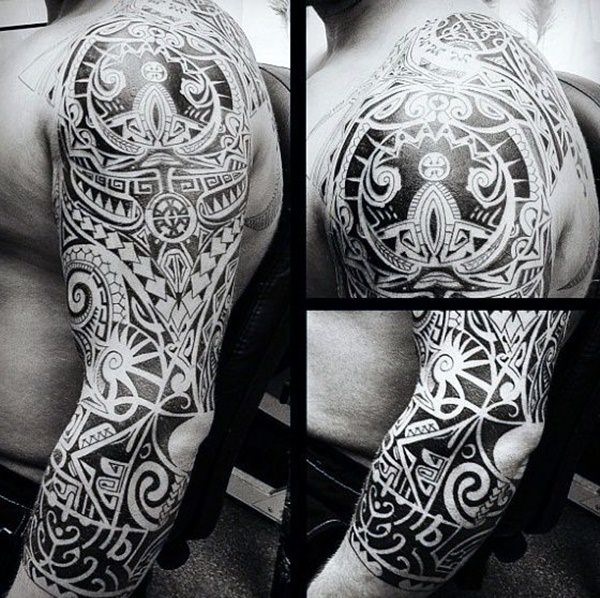
Most tribal designs – and even modern tattoos – are, above all, created to be shown. That's why you may prefer to choose a place that is more visible if your lifestyle and professional career permit. You might consider acquiring a band with patterns of this style around the leg, for example, or a elaborate tattoo on the shoulder. A very popular place for tribal body work is the forearm, as it is also a place often used as a backdrop for traditional tattoos of this type.
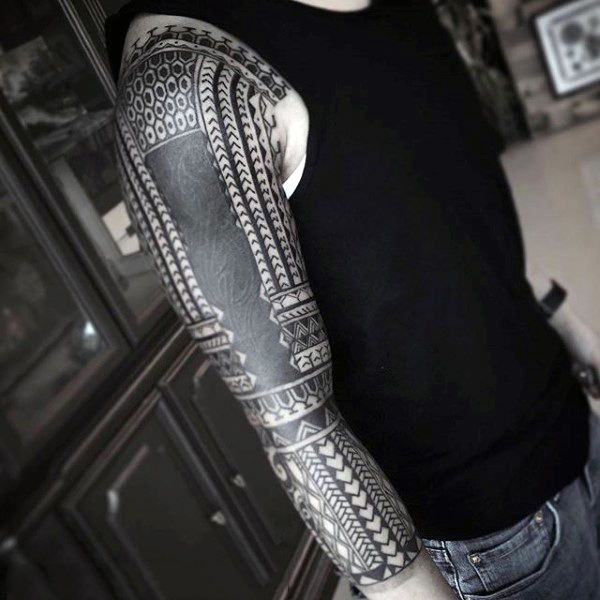
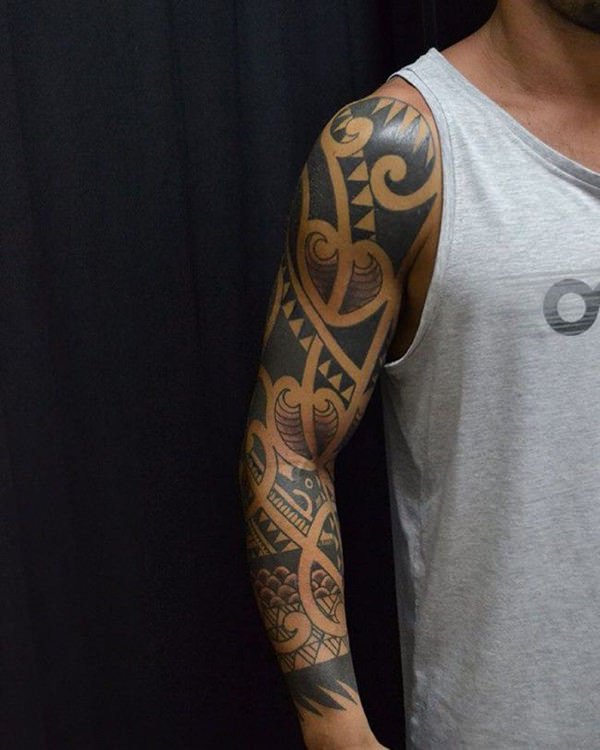
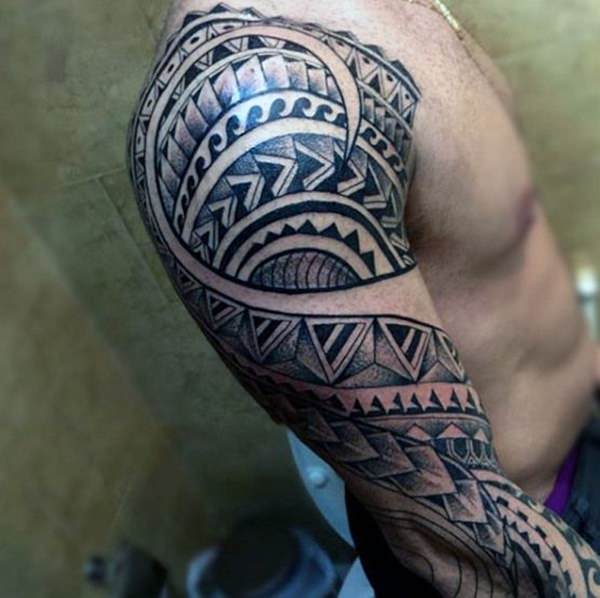
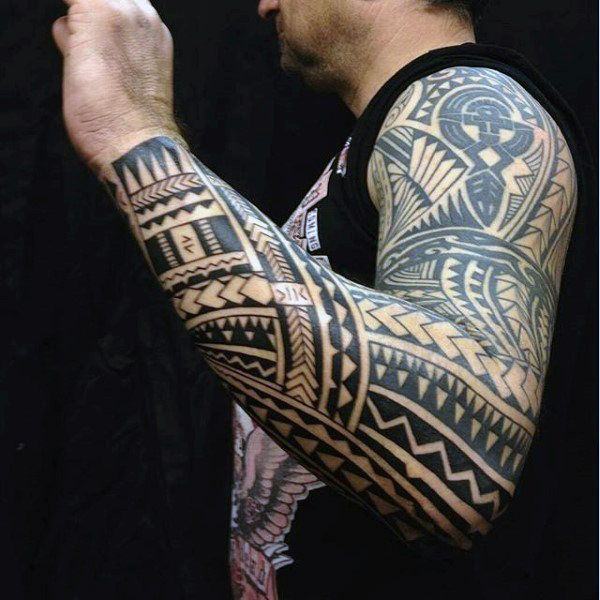
Preparation tips before the tattoo session
The preparation for a tribal tattoo session is not very different from the preparation for any other type of tattoo. The first thing to do is always to be as cautious as possible in choosing your tattoo artist. In fact, 50% of the preparation for the tattoo session should be dedicated to finding the right artist because, after all, it is the person responsible for printing a potentially permanent drawing on your skin. This artist will make a lasting and irreversible change to your body, so you have to make sure he is as talented and trustworthy as possible.
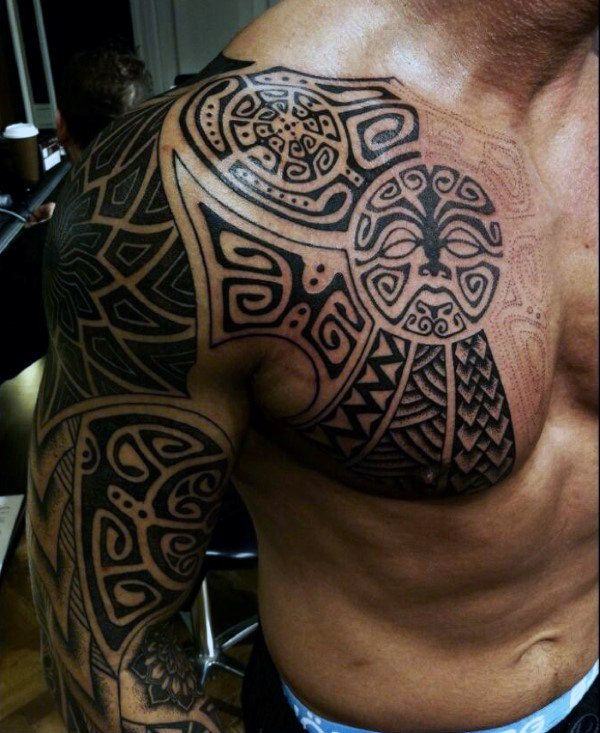
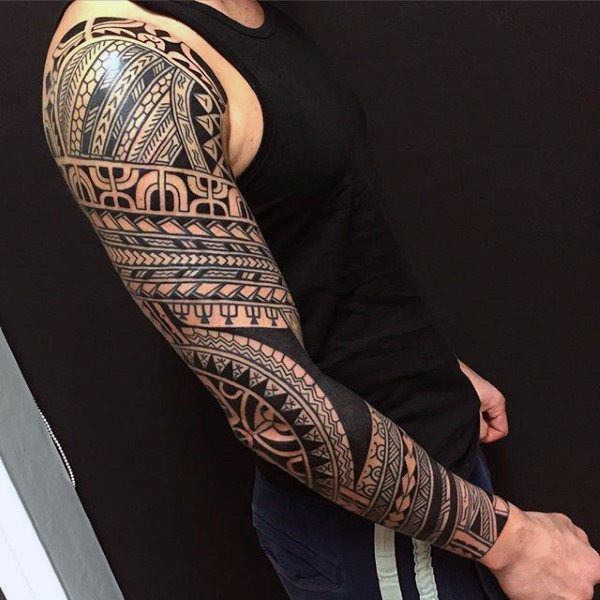
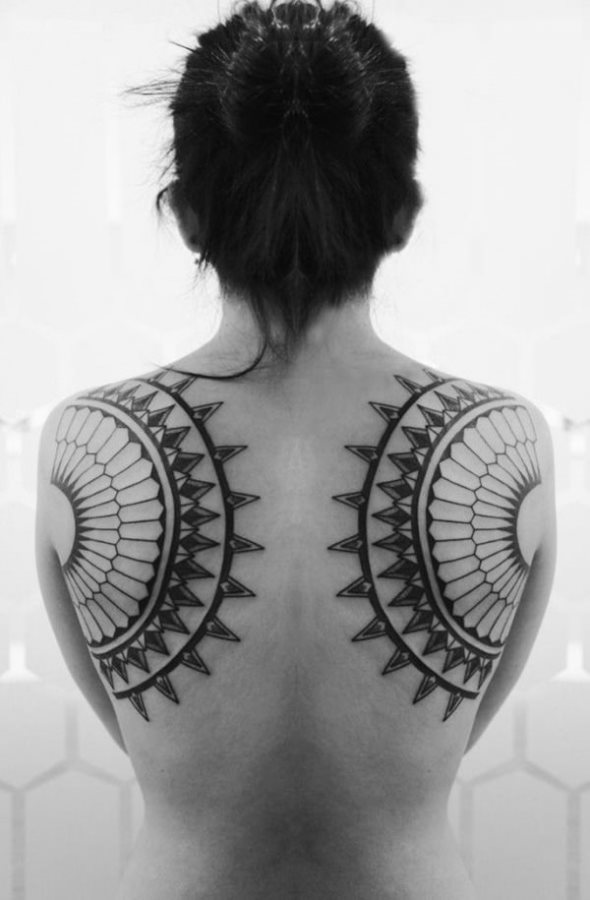
You must also make sure that this artist works in a clean environment. This is probably the most important thing to consider when choosing a tattoo artist – as well as his artistic abilities. The cleaner the tattoo studio and instruments are, the less likely you are to compromise your health with an infection after the session. How to know that the artist does a clean job? Try to locate the following indicators:
- Does the studio itself seem clean? In general, a dirty studio means that the instruments are dirty. Be uncompromising at this level.
- Does the studio have an autoclave for sterilizing needles? Ask to see him and with what regularity he is used.
- Does the artist work with gloves? He must always wear it when working on a tattoo.
- Does the artist open the needle packaging in front of you? It should, because the needles must always be new and be in saddled packs before use.
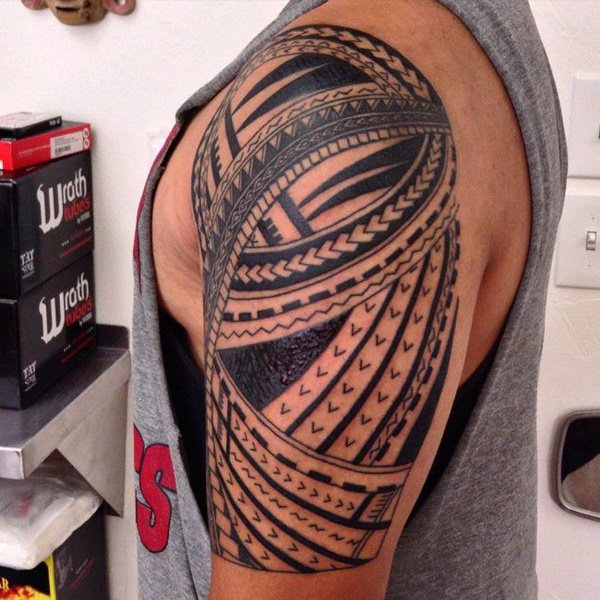
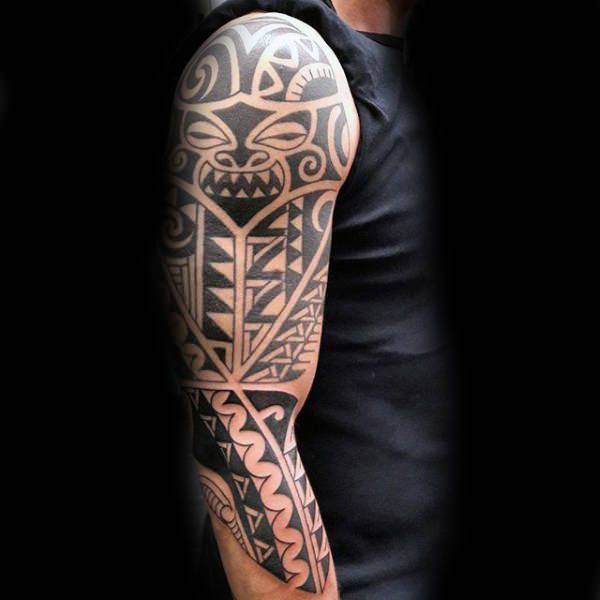
Feel free to ask for feedback on the artist you think you're going to hire. Ask other people who spoke to him about their experience. You might even ask to see their tattoos – most are not usually intimidated by showing them. Ask them how satisfied they are with the artist's work and if there have been any complications.
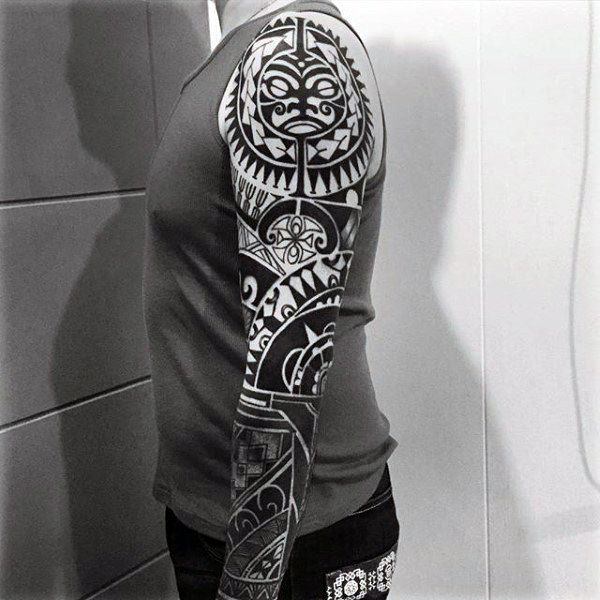
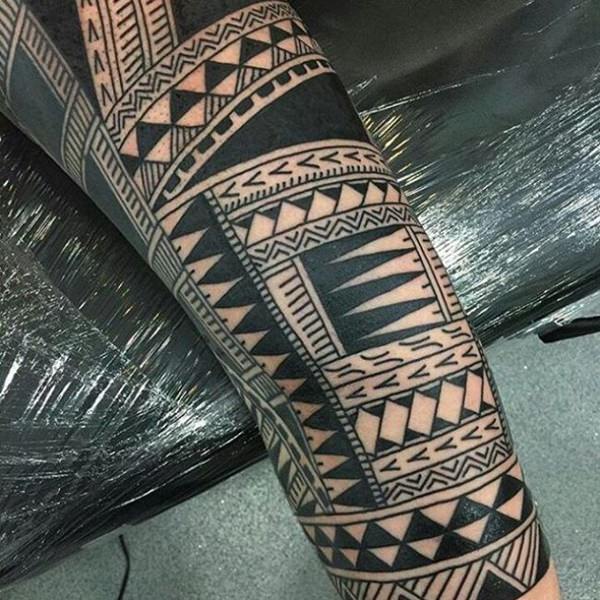
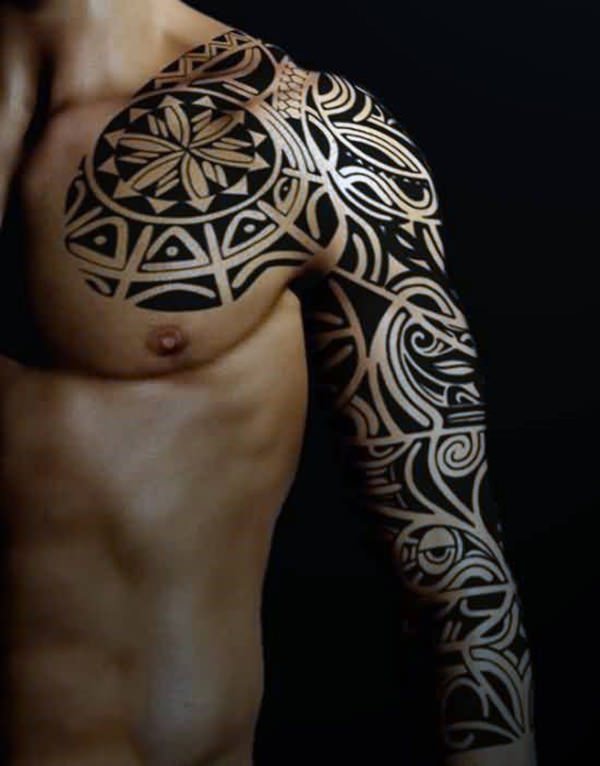
Once you are satisfied with the information you have collected and decided to hire the right artist to do the job, prepare your mind and body. First and foremost, be sure to be in the best possible health condition when you get tattooed. If you're unlucky enough to get cold the day before your tattoo session, refer to it: you can still reprogram it. It is smarter to do this than to put your health at risk by stubbornly submitting to the ink gun when your immune system is already trying to defeat an invader.
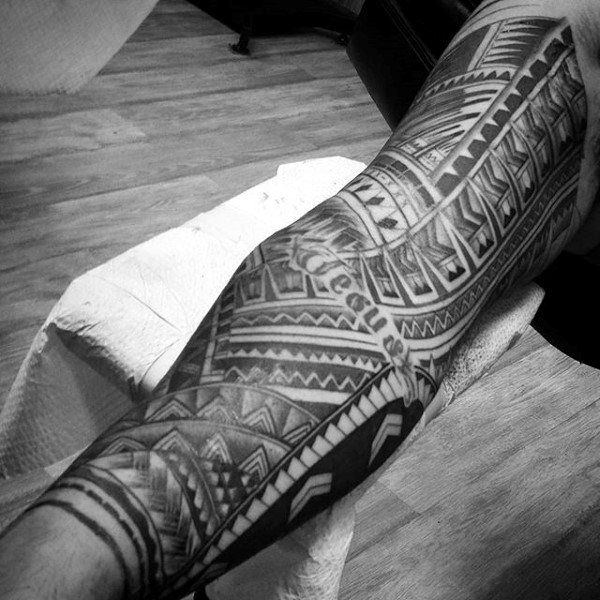
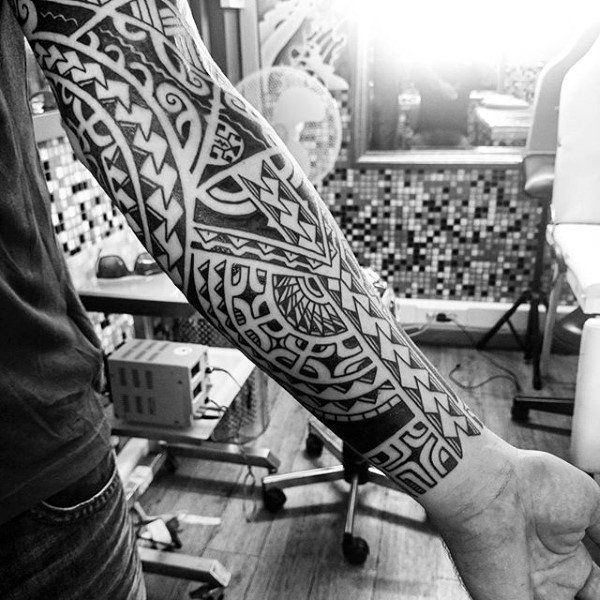
Make sure you do not arrive at the tattoo studio with the hangover. These accentuate the pain, which means that the artist will have more trouble doing his job. In addition, alcohol thins the blood, which increases the risk of bleeding. Women should try to avoid making an appointment when they have their period because they are usually more sensitive at that time of the month.
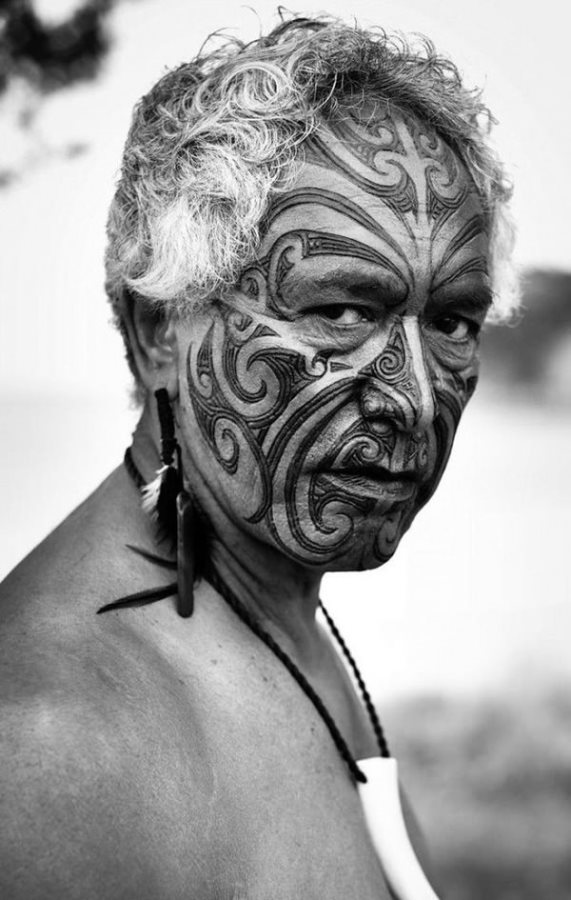
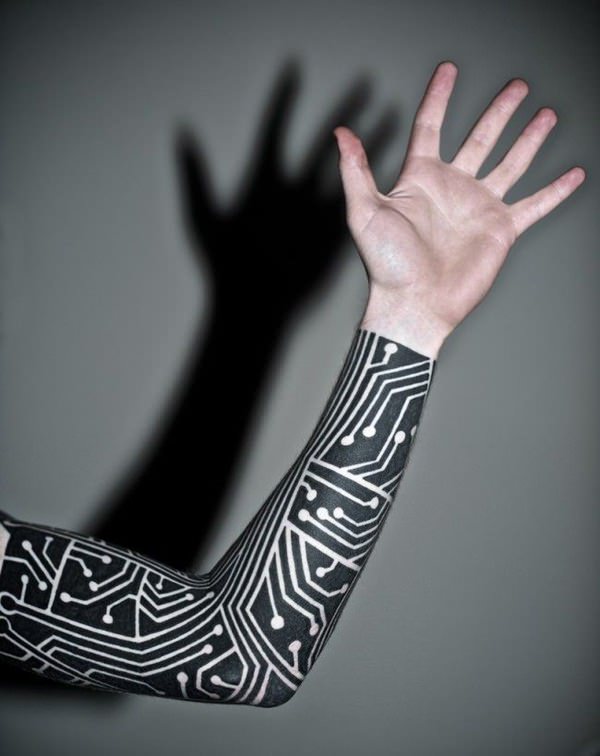
Estimation of implementation costs and standard prices of tattoos
The cost of a "catalog" tribal design can be € 50. This price is usually the bare minimum required by the majority of tattoo artists. If you want something the size of a palm, for example, you may be considering a drawing worth several hundred euros.
In general, the larger the drawing, the higher the price will be. Many artists may also charge you a rate per hour of work instead of setting a price for the finished product. Larger drawings are usually calculated on this basis. Smaller designs, which are usually completed sooner, have fixed prices.
It can be tempting to look for the cheapest prices, but you must avoid doing so. Trimming the price of tattoos usually brings disastrous results, if not diseases due to lack of sterilization of instruments. The fact is that the best tattoos will cost you a lot, because they require the work and talent of an experienced artist and you will have to pay these artists for their time.
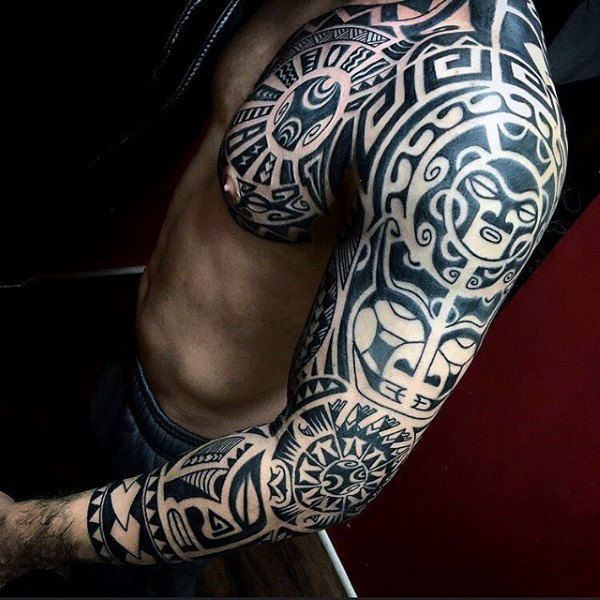
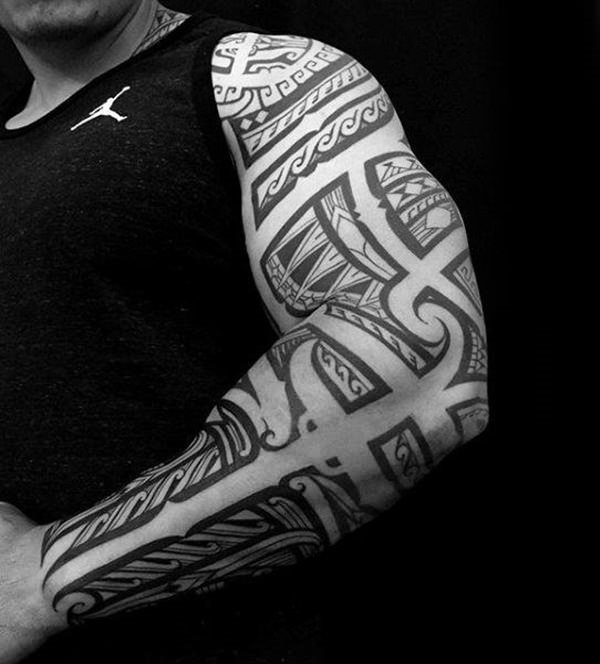
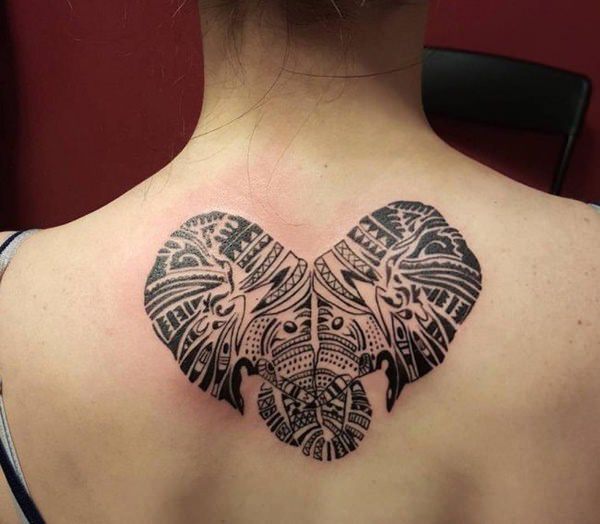
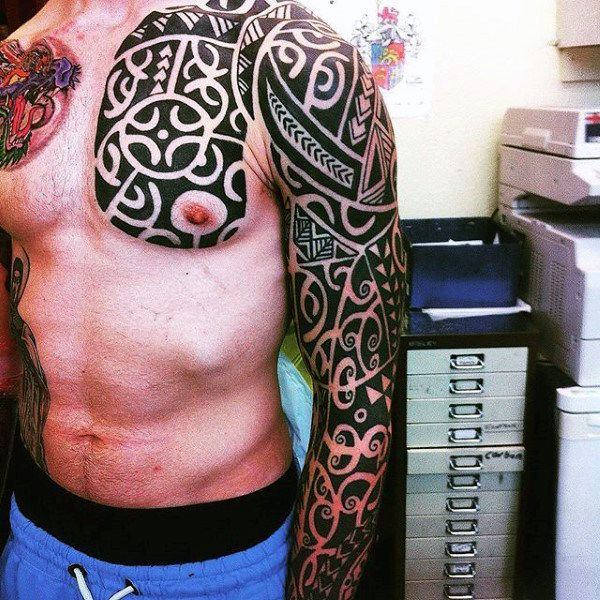
Maintenance Tips for Tribal Tattoos
After having a tribal tattoo, you will have to take care of it to speed up your healing. Tattooing is a process that hurts the skin, so it's smart to make sure that no infection develops. An infection can lead to the loss of a limb or, in the worst case, of life. This is why you should not take lightly the cases of infection: you must go to the hospital at the slightest sign of inflammation. You can even ask your general practitioner to help you monitor the progress of your body art work by doing a check-up.
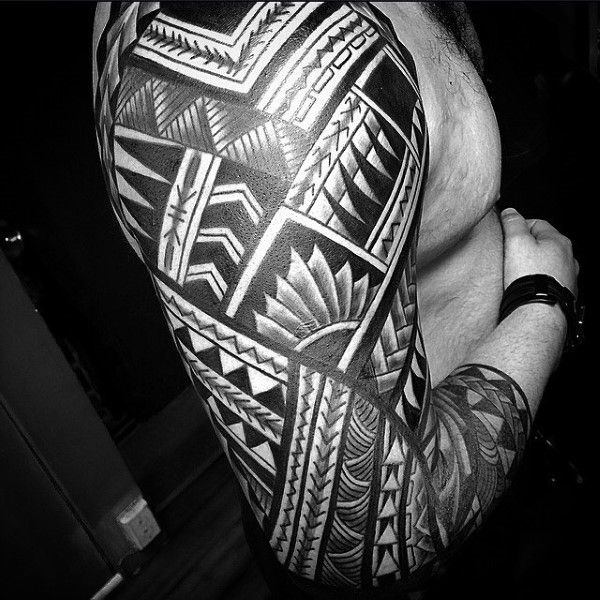
Many artists prefer their clients to place a bandage on the tattooed area for a few days after the session. Ask your tattoo artist what his or her care recommendations are and if the price of your tattoo includes products. Some studios include antibacterial soap and gauze in their pack.
Keep the tattoo as clean as possible. When you wash it, do it gently and try to avoid damaging the skin with too abrupt movements or rough textures. This is why, to dry it, you should lightly tap the tattooed area with a clean towel and avoid rubbing: the friction could irritate the small wounds and could even bring in bacteria.
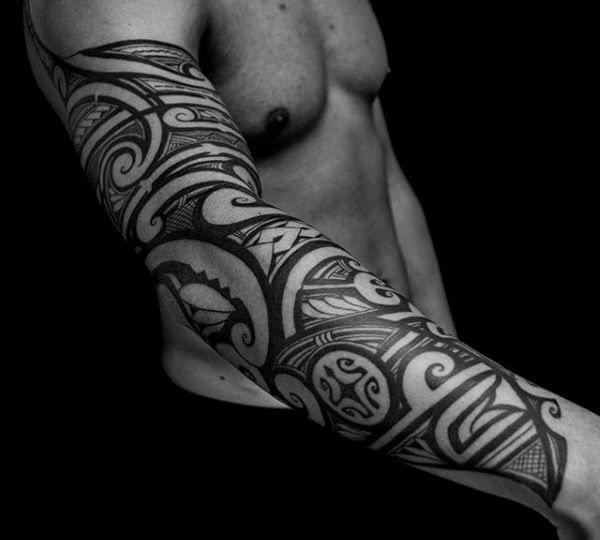
Some people prefer to run no risk and take antibiotics directly after the session. It is not necessarily indicated if your body art work was done in a clean studio that respects an ad-hoc sterilization protocol.
In summary, these tattoos catch the eye and are a beautiful body drawing option. The fact that they refer to the past and traditional cultures makes them particularly attractive to those who have a connection to these cultures – those who have indigenous blood in their lineage, for example, like to have a symbol that reminds them of their origins and the story of their family. This of course does not mean that you can not do this type of tattoo if you have nothing to do with these cultures, since many people are getting modern tribal tattoo designs nowadays. And you? Do you know of a tribal pattern that you think could make it attractive on the skin these days?
